Are Dahlias Perennials? The Ultimate Guide to Planting and Care
Are Dahlias perennials? In this ultimate beginner’s guide to growing and caring for dahlias, I’ll answer that question and share everything you need to know about planting and caring for these beautiful flowers.
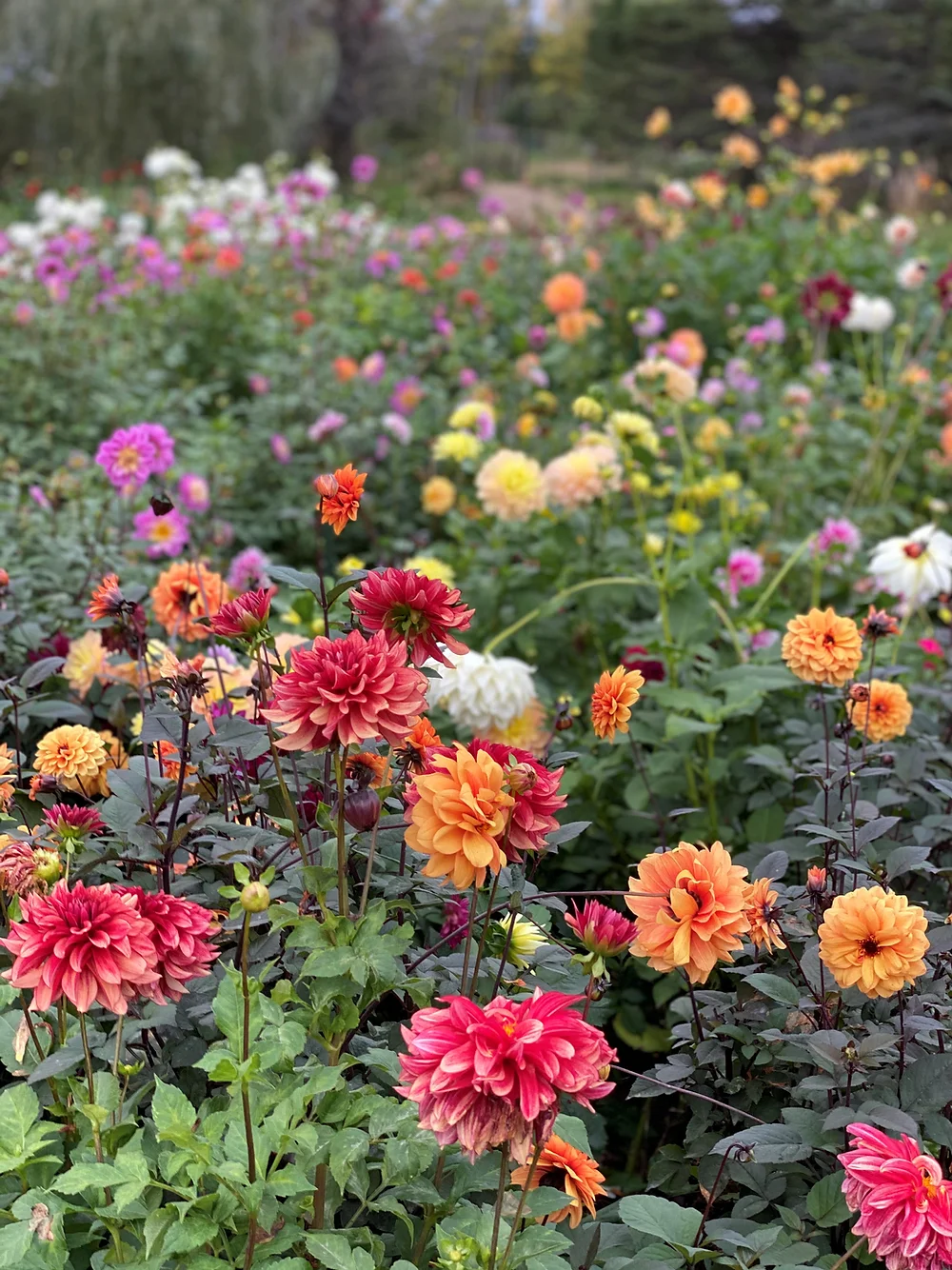
On my blog WM Design House, I may sometimes use affiliate links, which means a small commission is earned if you purchase via the link. The price will be the same whether you use the affiliate link or go directly to the vendor’s website using a non-affiliate link. Read my full disclosure policy here.
Welcome to Dahlia Gardening
I love growing dahlias. They are truly one of my favorite flowers! Their vibrant colors and stunning blooms never fail to bring joy to our gardens and outdoor living space.
Dahlias are flowering plants with tuberous roots, and are originally native to the mountainous regions of Mexico and Central America.
Not only are they incredibly versatile, but dahlias come in a variety of shapes and sizes, making them a perfect addition to any garden design. There are thousands of different dahlia varieties you can grow in your garden. The hardest part is picking your favorite ones!
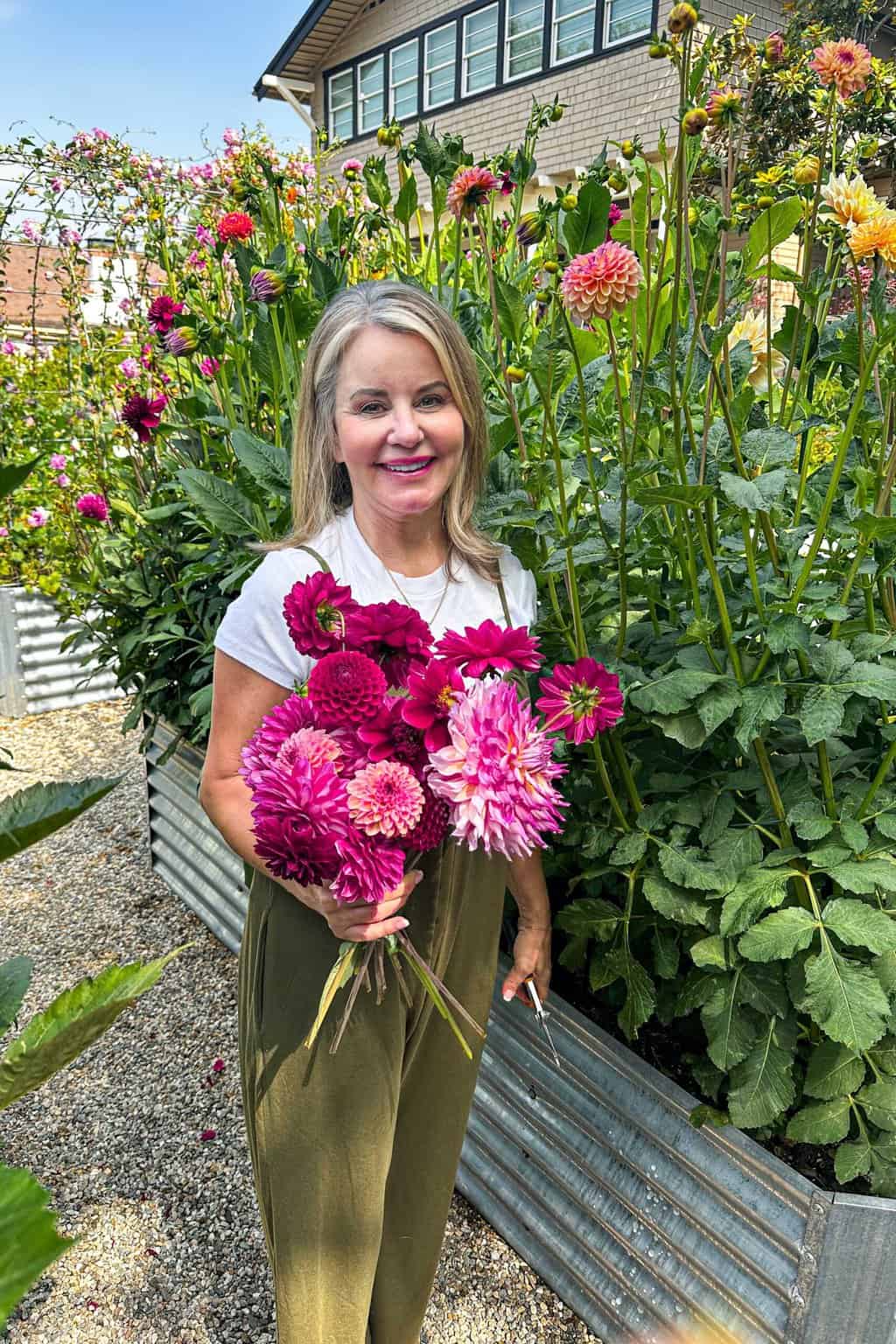
Whether you’re a seasoned gardener or just starting out, dahlias offer a wonderful opportunity to add beauty and charm to your cutting garden.
In this guide, I am sharing everything you need to know about these gorgeous flowers, from their lifecycle to planting tips and care, and answering the ultimate question many beginning gardeners ask: Are dahlias perennials?

Are Dahlias Perennials?
Are dahlias perennials or annuals? It’s a common question, and the answer may surprise you.
The truth is, it depends on where you live! Dahlias are considered tender perennials, which means their plant classification depends on your hardiness zone; these types of perennials will not overwinter in the garden if it is too cold.
So, how do you know if dahlias are an annual or a perennial in your garden? Let me explain.
Are Dahlias Perennials? Understanding Your Hardiness Zone
The first step to understanding if dahlias are annuals or perennials is to know your hardiness zone. If you are not sure what your zone is, The USDA plant hardiness zone map is great tool to figure out if your climate is right for dahlias.
Simply enter your zip code in the search bar, and the tool will instantly tell you your zone. It’s that easy!
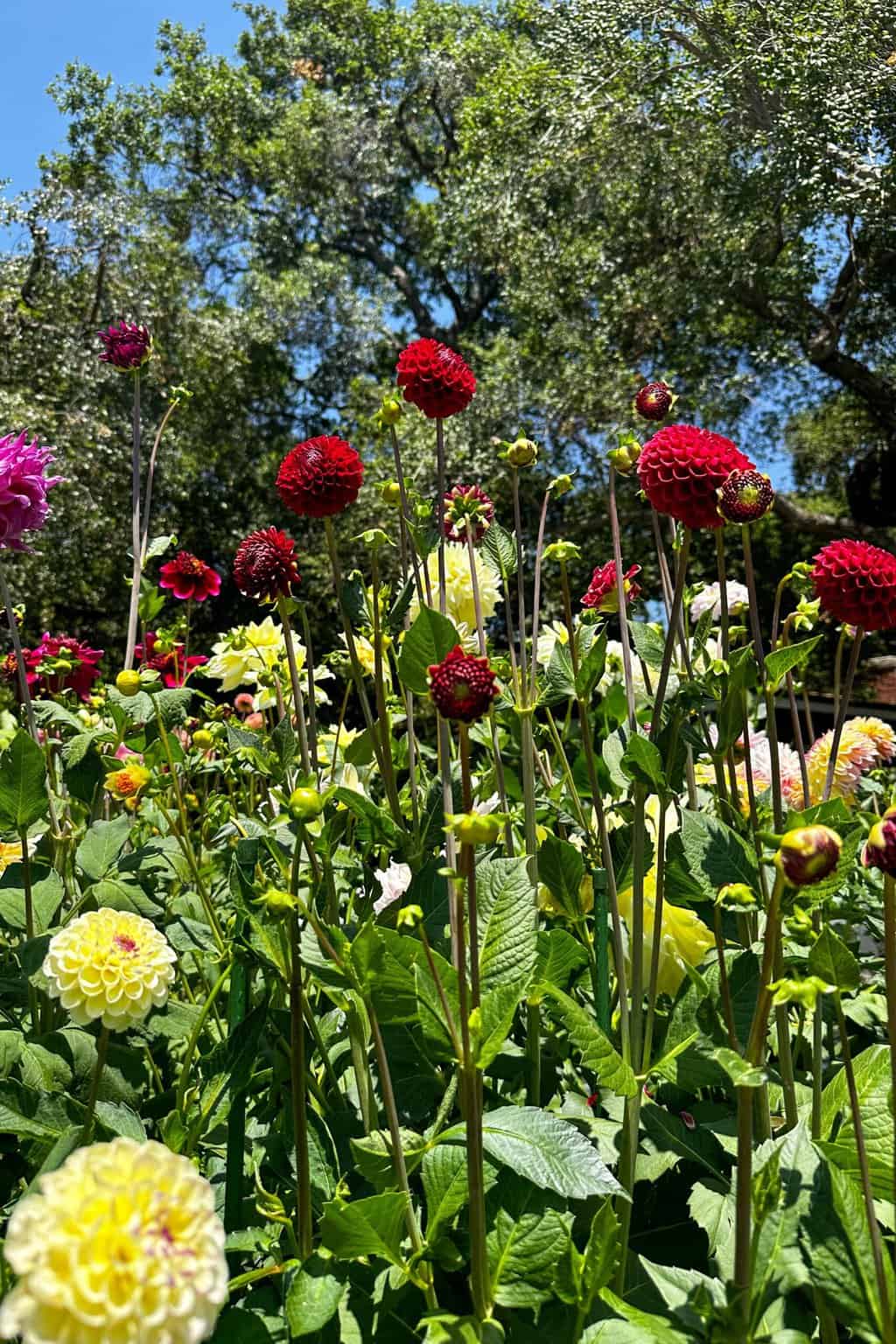
In the United States, dahlias thrive in hardiness zones 6-11 but are only considered to be winter hardy in zones 8 or higher.
I live in Southern California in hardiness zone 10b, where it’s warm all year round. That means my dahlias can stay in the ground and are perennials that come back year after year. If you live in a similar mild climate, your dahlias can probably do the same.
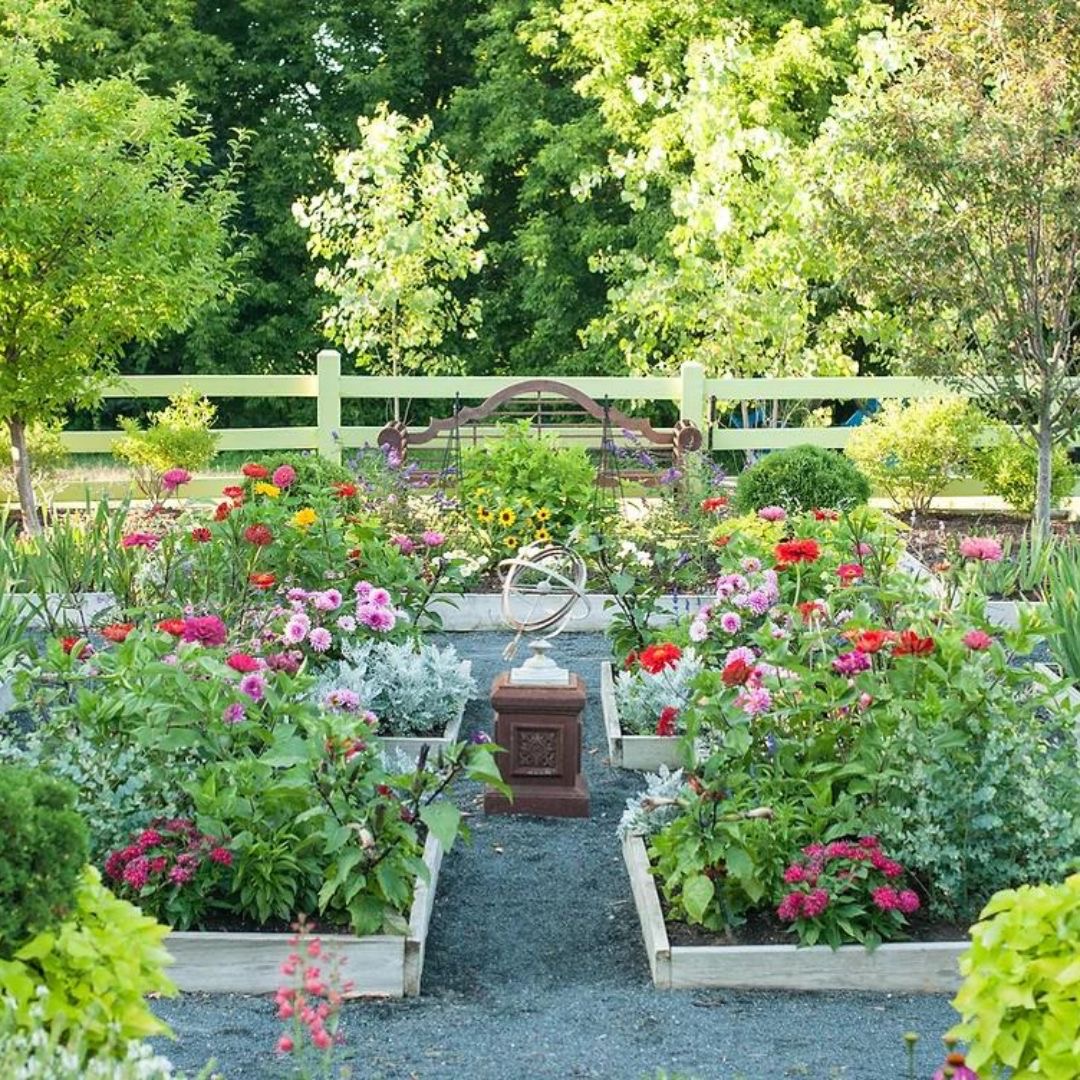
However, if you live in a colder climate your dahlias are annuals, meaning you will need to dig up your dahlia tubers and safely store them for the winter season.
Tip from wendy’s garden:
If you leave your dahlia tubers in the ground over winter, make sure to protect them from the elements! Cover your dahlias with about three inches of dried leaves to keep them safe from the cold.
Types of Dahlias
Dahlias are mainly categorized by their flower shape and size. Knowing these classifications can help you choose the best varieties for your garden.
My favorite dahlia varieties include Dinner Plate Dahlias, Anemone Dahlias, Ball Dahlias, and Star Dahlias. Here are a few other popular types of dahlias:
- Single-Flowered Dahlias
- Waterlily Dahlias
- Collarette Dahlias
- Pompon Dahlias
- Cactus Dahlias
- Decorative Dahlias
- Fimbriata (Fringed) Dahlias
You can also check out the National Dahlia Society. They are a great resource and have more information about specific varieties of dahlias.
Choosing The Right Dahlia Varieties for Your Garden
So how do you know which varieties of dahlias are best for your home garden? It really depends on what you like, but there are few key factors to help you decide which varieties to choose.
Dahlia Size
How tall do dahlias grow? It is one thing to keep in mind when planning your garden and choosing your dahlias.
Depending on the variety, dahlias can range in height from 15 inches to well over 6 feet tall!
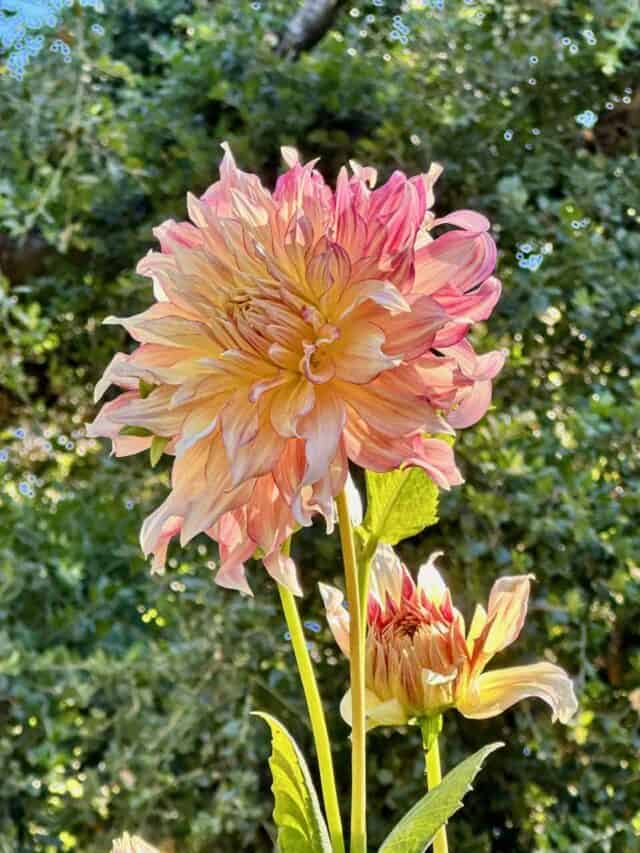
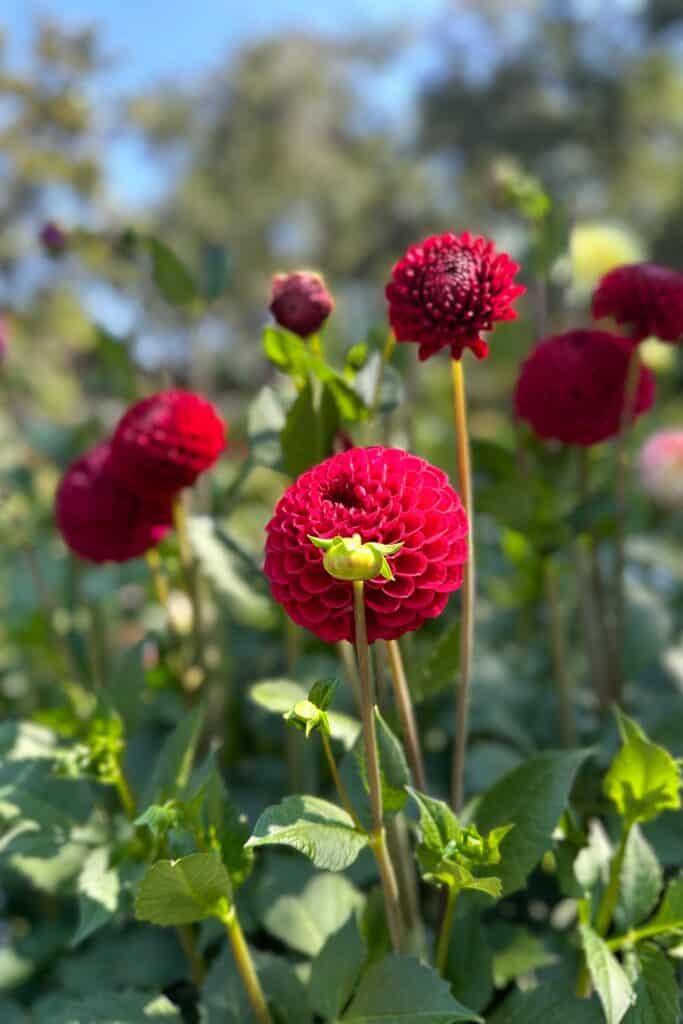
The flower size also varies widely. Dinner Plate dahlias have the most enormous blooms, reaching up to 15 inches wide, while tiny Pompon dahlias are the smallest, with blooms around 1-2 inches wide.
And there are many shapes and sizes in between!
So, be sure to consider the size of your space to make sure it can properly accommodate your dahlias.
Dahlia Color
Dahlias come in a rainbow of colors, except for blue and black. Some even have two colors in one flower!
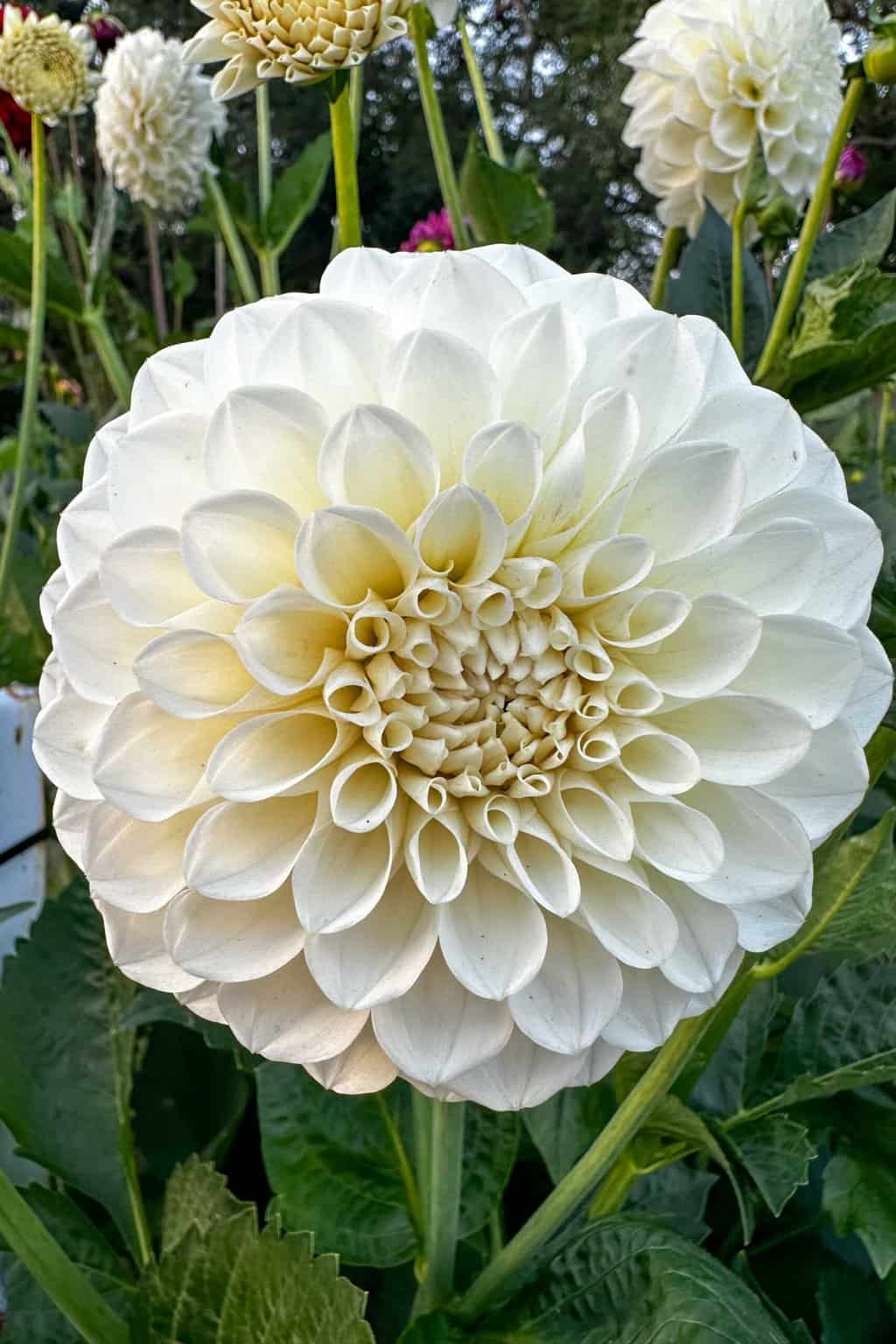
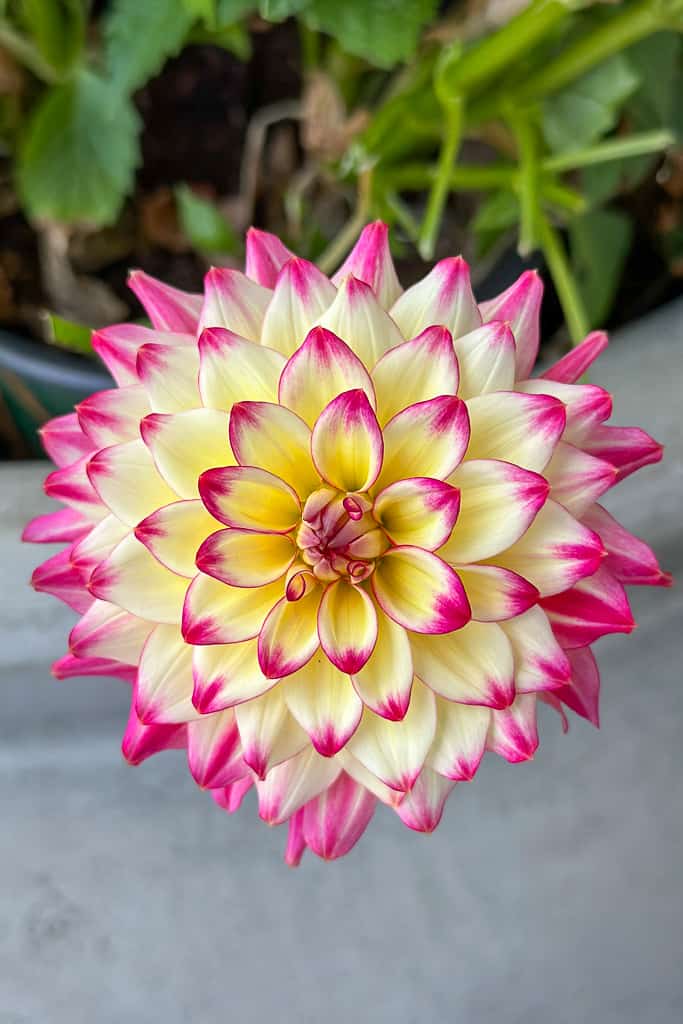
I’m partial to pink dahlias, but really I love them all!
When planning your garden, think about the colors you love or any color scheme you have in mind. This way, your garden will look vibrant and put together just the way you like it.
Tips and Tricks for Choosing Dahlias for Your Garden
Beyond the size and color, choosing the right dahlias for your garden involves considering several key factors to ensure vibrant and healthy blooms.
Start by assessing your garden’s sunlight exposure; dahlias thrive in full sun, requiring at least six hours of direct sunlight daily. Next, select dahlia varieties that match your climate and soil type. Dahlias prefer well-drained, fertile soil with a slightly acidic to neutral pH.
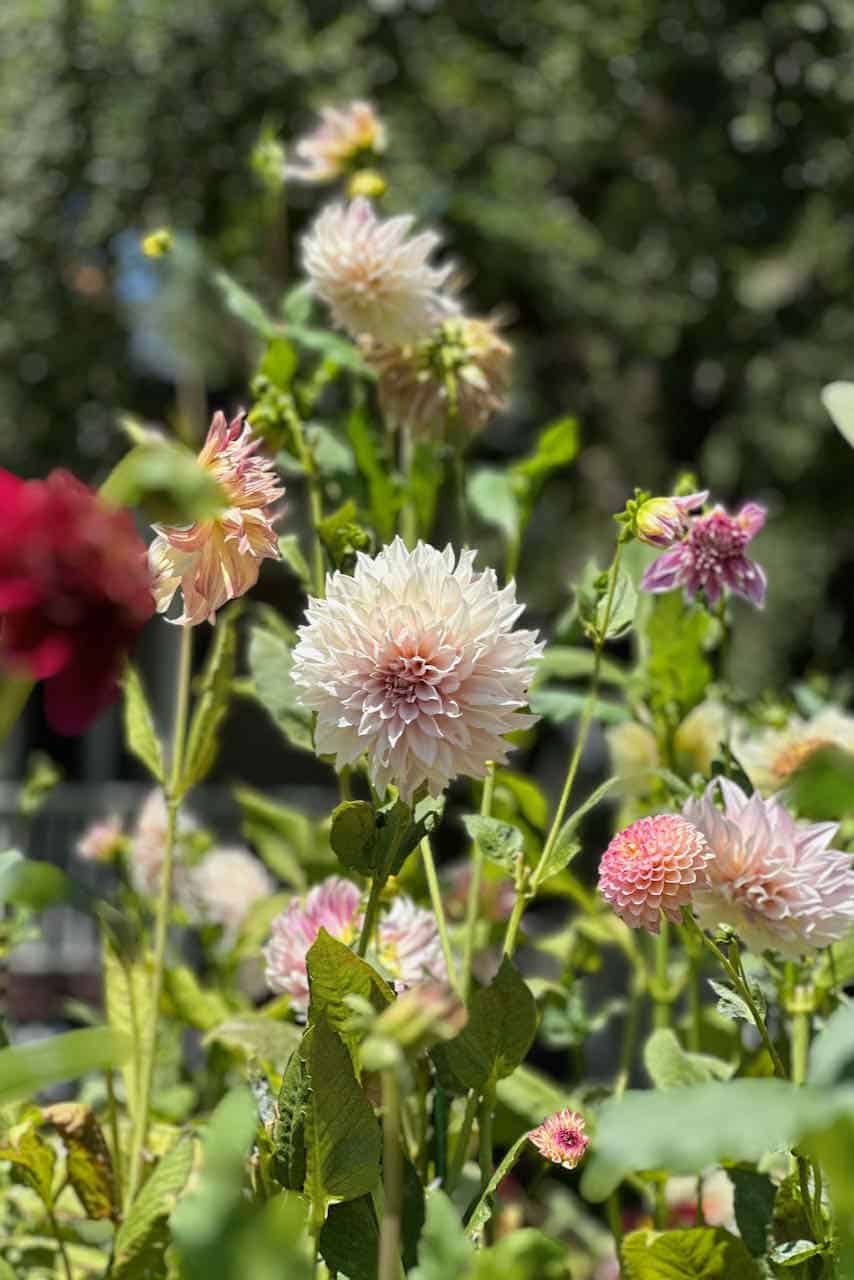
Finally, think about the bloom time and height of the plants to ensure they fit well with your garden’s design and other plants.
By carefully selecting dahlia varieties suited to your garden’s conditions and aesthetic goals, you can enjoy a stunning display of these beautiful flowers throughout the growing season.
Where to Buy Your Dahlia Seeds and Tubers
There are many places to buy dahlia tubers, but I particularly love the variety available at Sarah’s Cottage Creations Flower Farm. This small, family-owned business in Minnesota offers a fantastic selection, and I appreciate supporting a local enterprise that has built its farm with dedication and passion.
Once a year, the farm has a dahlia tuber sale where you can purchase your favorite varieties of dahlias. Typically, the sale starts at the end of January.
You can click HERE and see the gorgeous dahlias and prepare for your planting time.
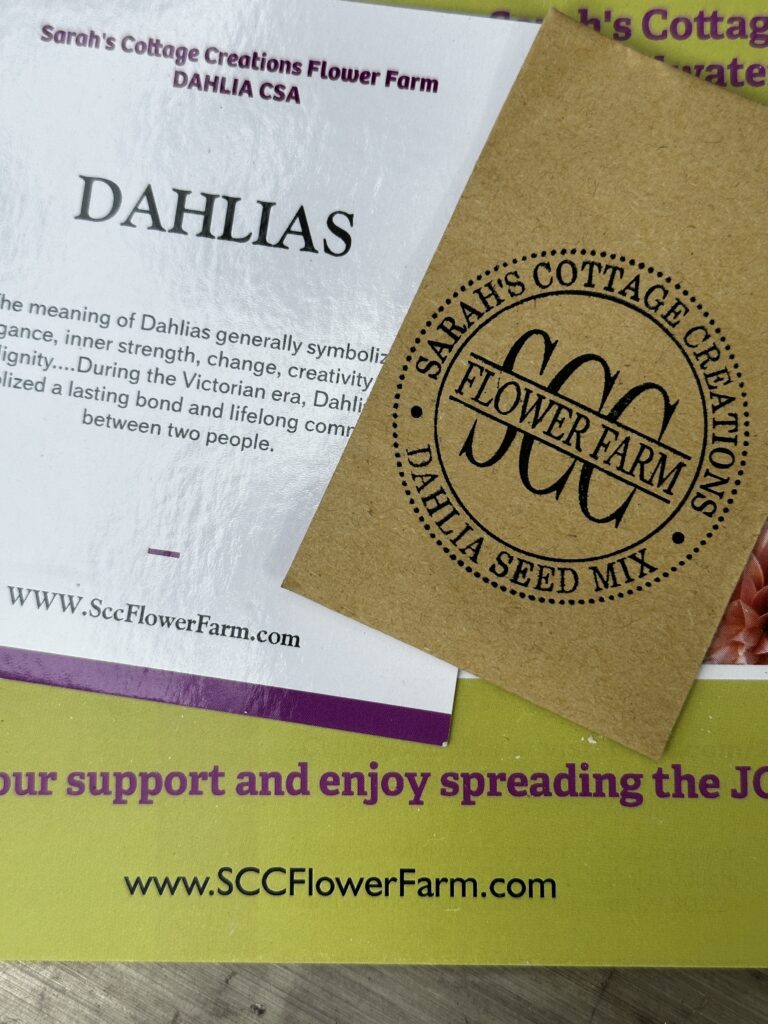
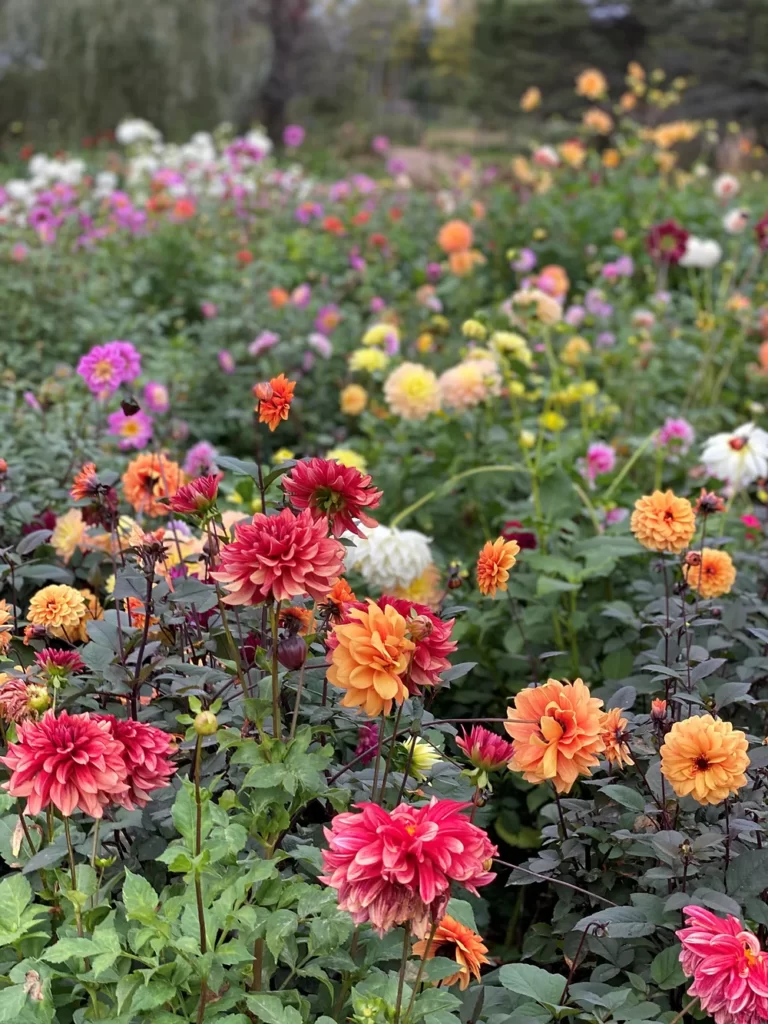
You can also purchase from some larger farms below.
A Beginner’s Guide to Planting Perennial Dahlias
Now that you know about the different types, colors, and where to buy dahlias, let’s dive into how to plant and care for them. From choosing the perfect spot in your garden to understanding their watering needs, and more I’ll guide you through every step to ensure your dahlias thrive.
What Growing Conditions Do Dahlias Need?
To help your garden flourish, here are some tips on the best dahlia growing conditions.
Dahlia Soil Requirements: It is best to grow dahlias in a moist well, drained sandy soil rich in organic matter, and a ph level of 6.0-7.5. You can read more about the best soil for dahlias in this post.
Dahlia Sun Requirements: Dahlias are sun lovers and thrive with 7-8 hours of sunlight.
tip from wendy’s garden:
If you have no idea what the ph of your garden soil is, you can purchase a soil tester to check it and then amend your soil to get your dahlias off to a great start.
When to Plant Dahlias
Dahlias can be grown outside in most climates, but they prefer warmer weather. So, if you live in an area where freezing temperatures and snow are a concern, it is important to wait for the last frost to pass before planting your dahlias in the spring.
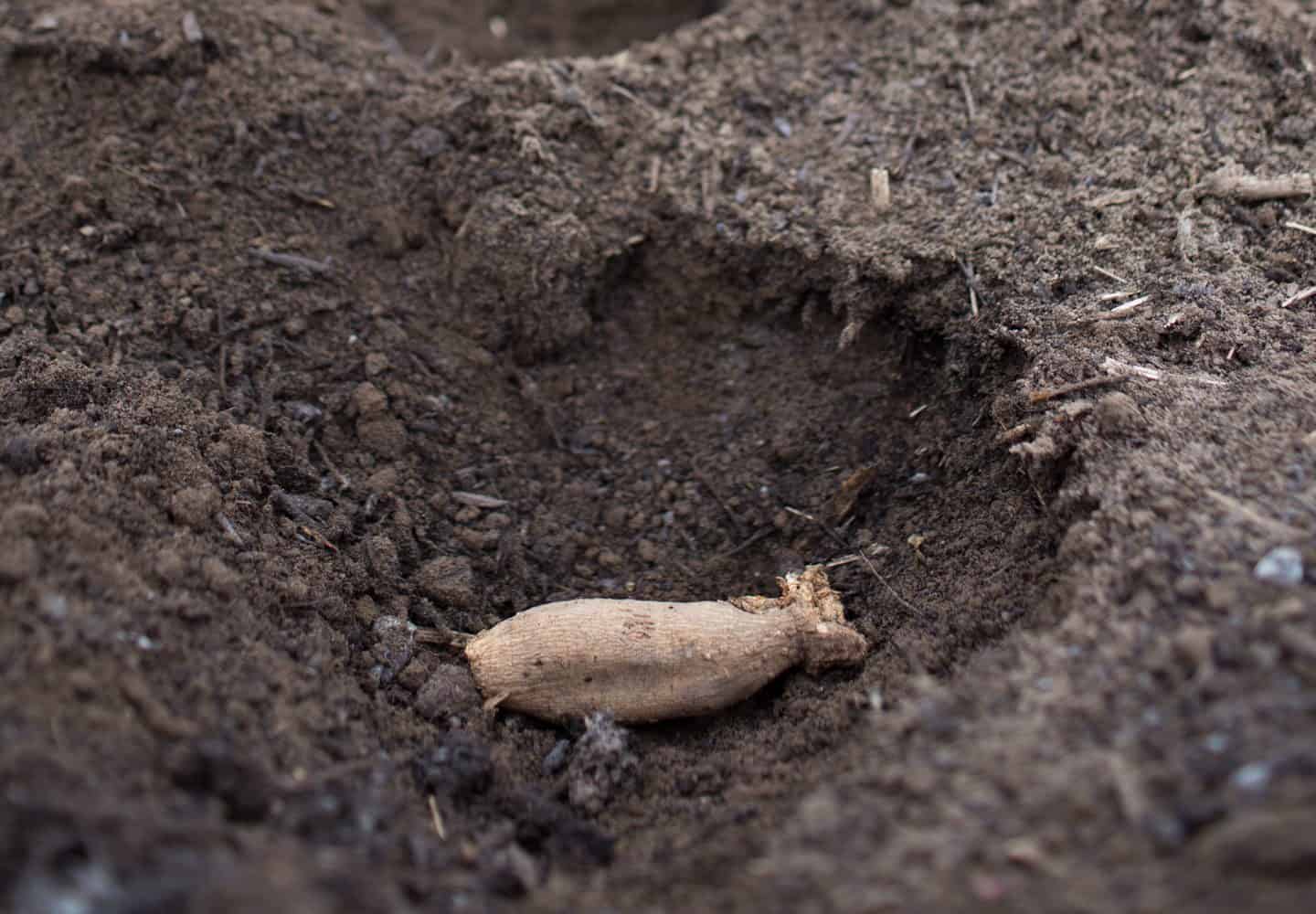
If you are not sure when your average last frost date is, The Farmer’s Almanac has detailed information to help you figure out when it is safe to plant your dahlias.
These dates are based on historical climate data, so they are not foolproof, but they should give you a good estimate of when the best time is to safely plant dahlias in your area.
Starting your dahlia tubers indoors or in a greenhouse is a common practice among avid gardeners and can be done up to 45 days before the last frost.
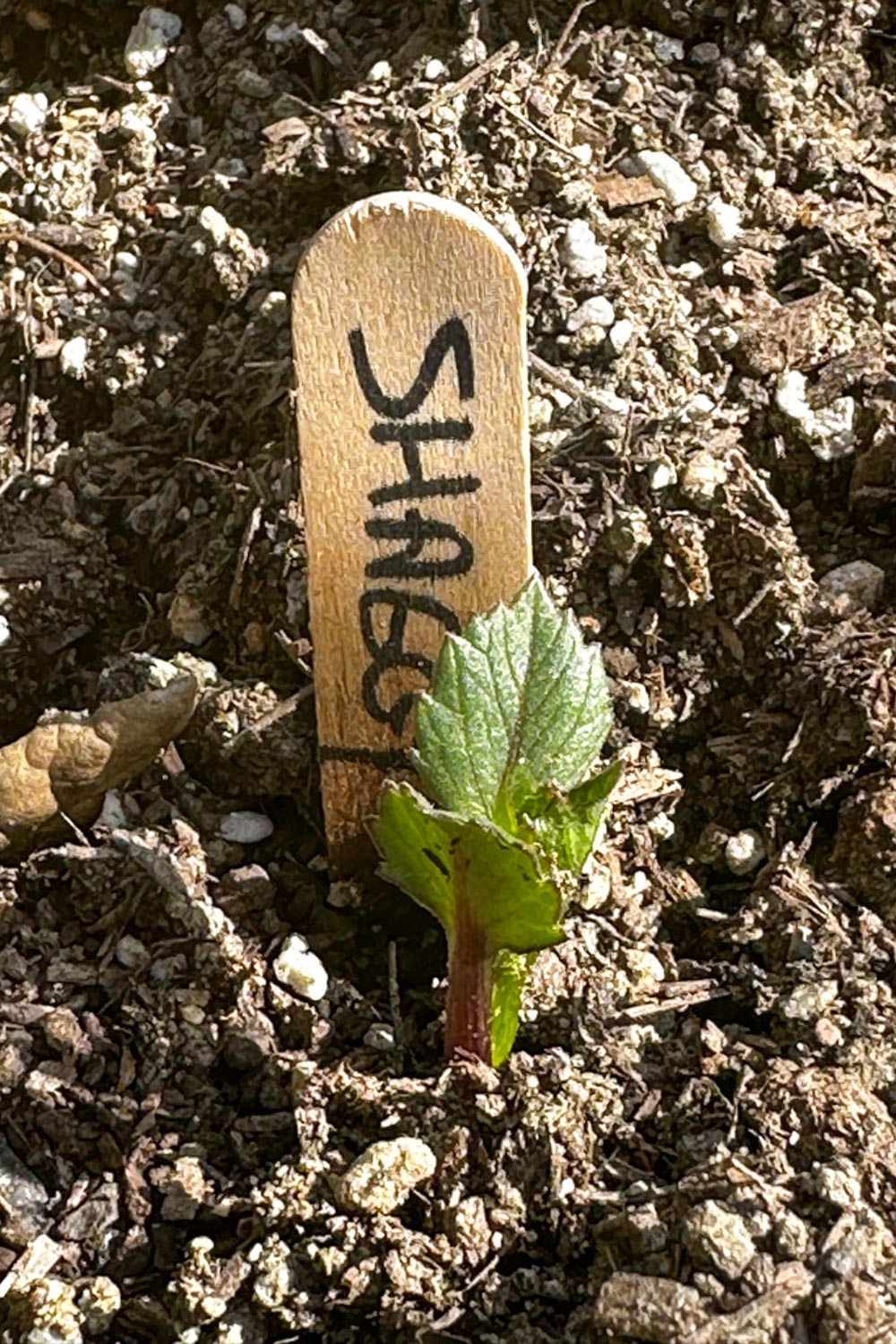
Another method to grow dahlias is by using dahlia seeds. These can also be started indoors or in a greenhouse, providing a head start on the growing season.
How to Plant Dahlias
Planting Dahlia Seeds
Use a seed tray and fill the tray with moist seed-starting soil
Using the end of a pencil, make a small hole in the ground, place your seeds in the hole, and gently cover the seeds with soil.
Moisten the soil and keep it moderately damp at 70 degrees Fahrenheit.
Using a greenhouse or covering over your seeds will help this process.
Germination should occur 7-12 days later.
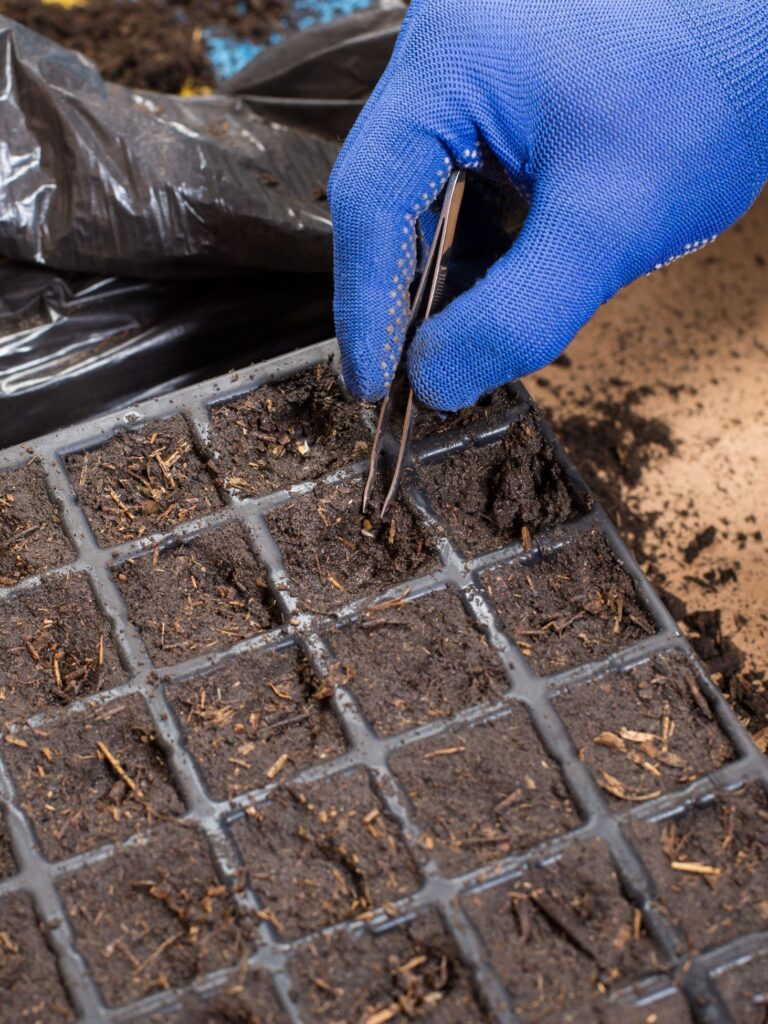
Once the plants are large enough that their leaves are touching each other, it is time to replant them into a larger container. I suggest a 3 inch pot or larger.
If you have grown your seeds indoors, you must harden them off. Hardening off is a process to acclimate them to the natural environment outside.
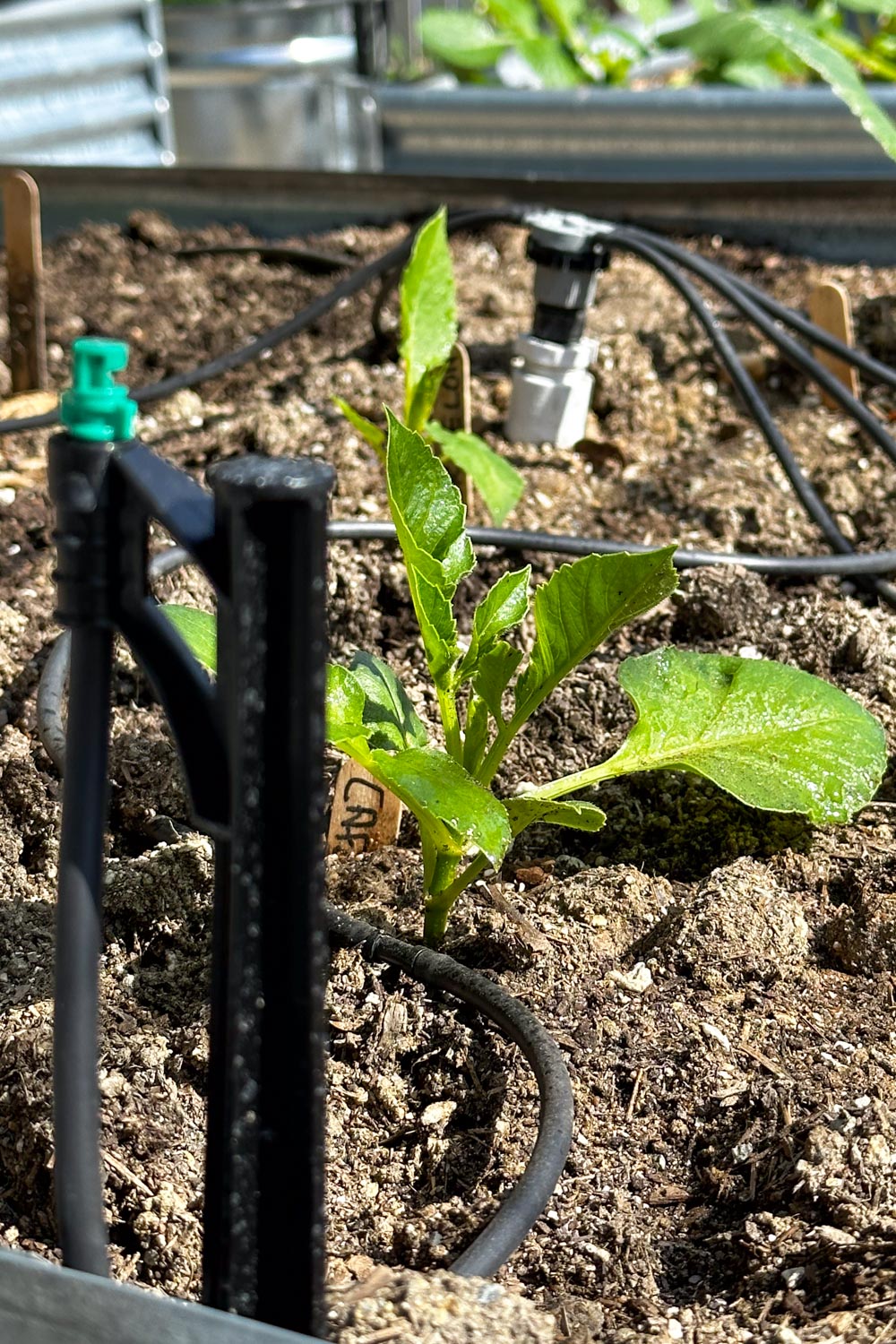
This process involves taking them outdoors for short periods and increasing that time each day.
Be sure to make sure the last frost has passed before you plant them in the ground.
You may find that the plants from seeds will take longer to bloom than planting tubers or small plants.
Planting Dahlia Tubers
Now that you know the answer to this question, “are dahlias perennials” let’s talk about their roots or tubers.
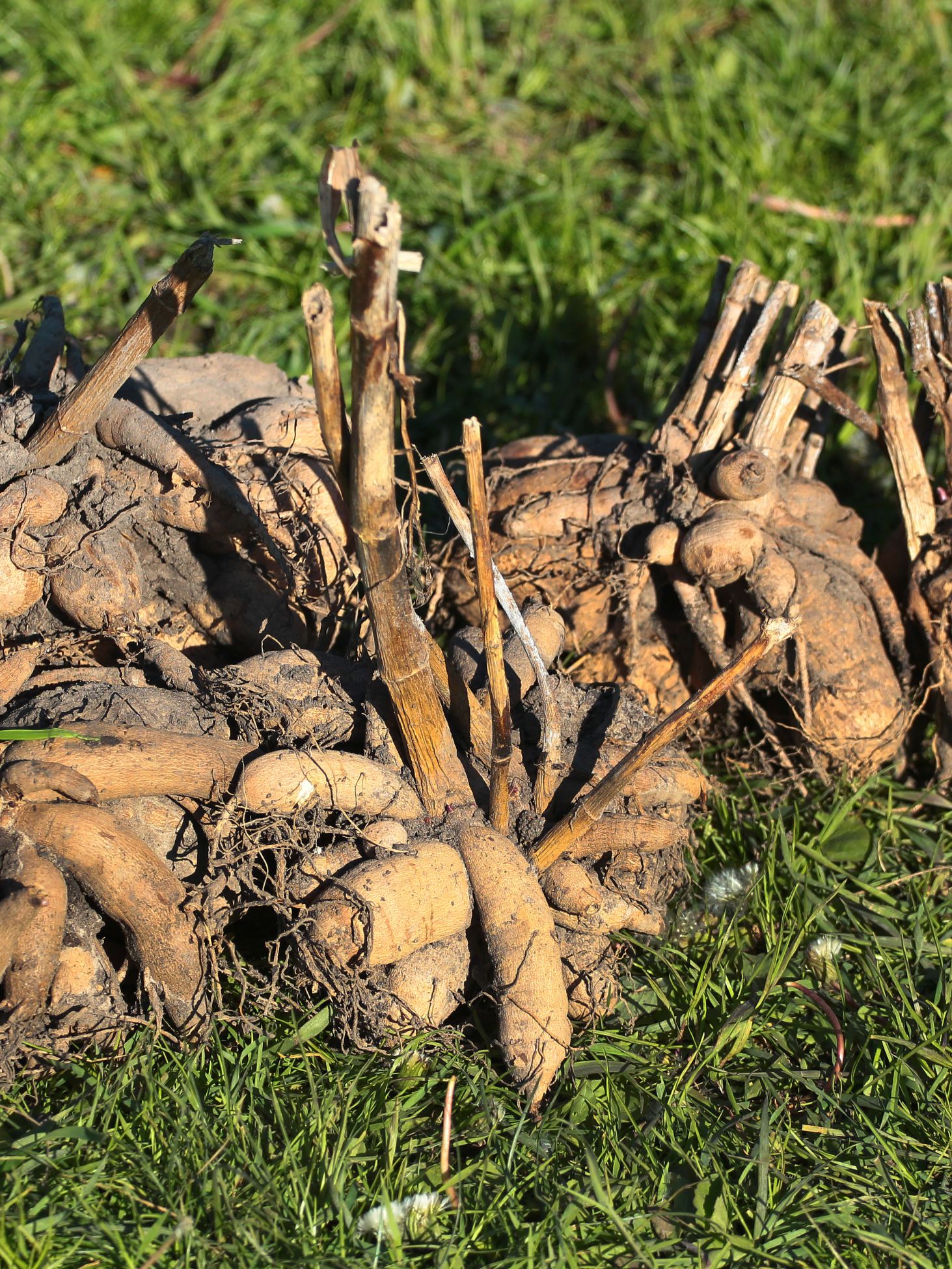
The best time to plant your dahlia tubers is when the soil temperature is 55 degrees or higher. In most areas, this occurs in Mid-April through May.
If your soil is very clay-like, you can add sand, vermiculite, and peat moss to make it drain well. Typically, you can find these soils at Home Depot and local nurseries.
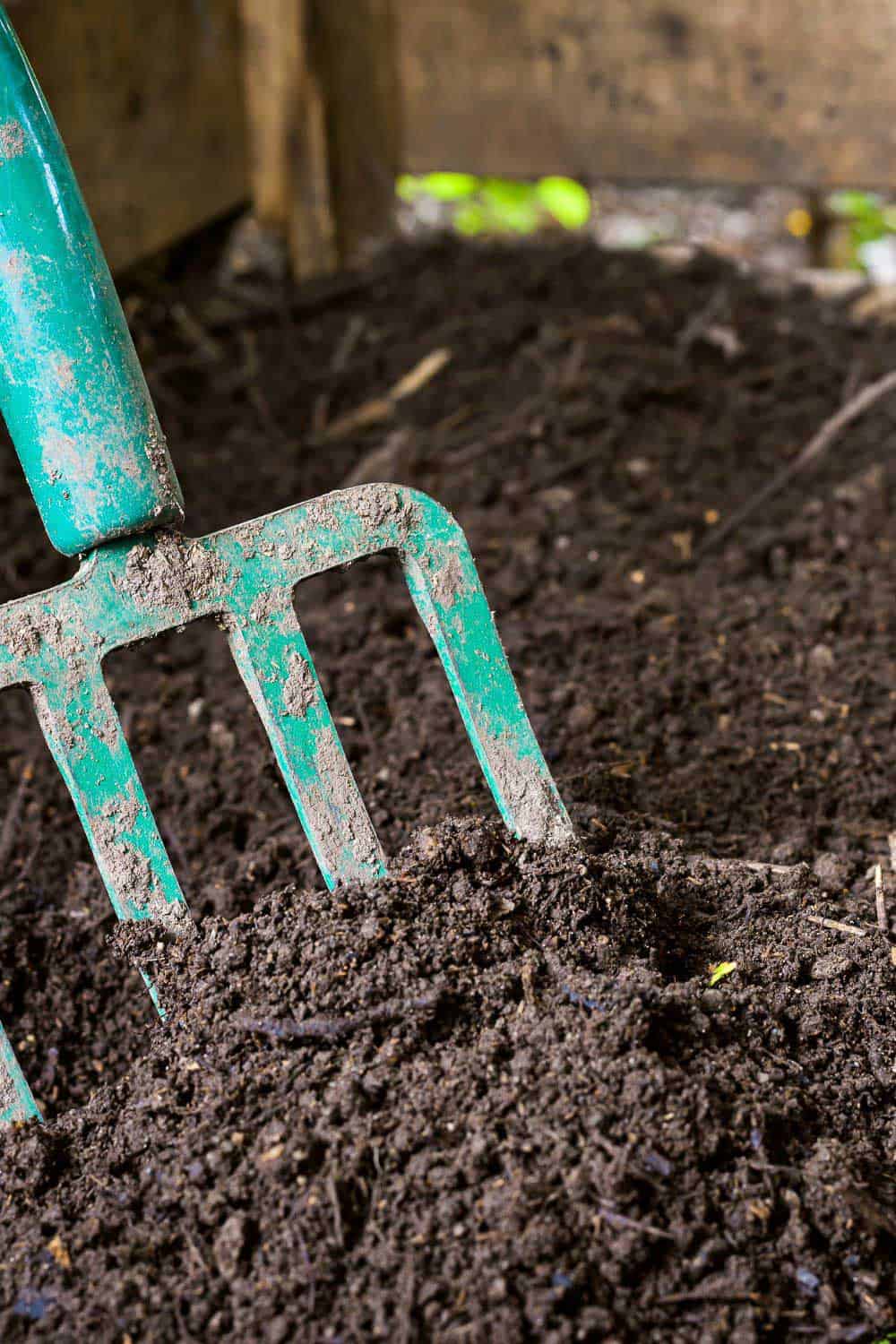
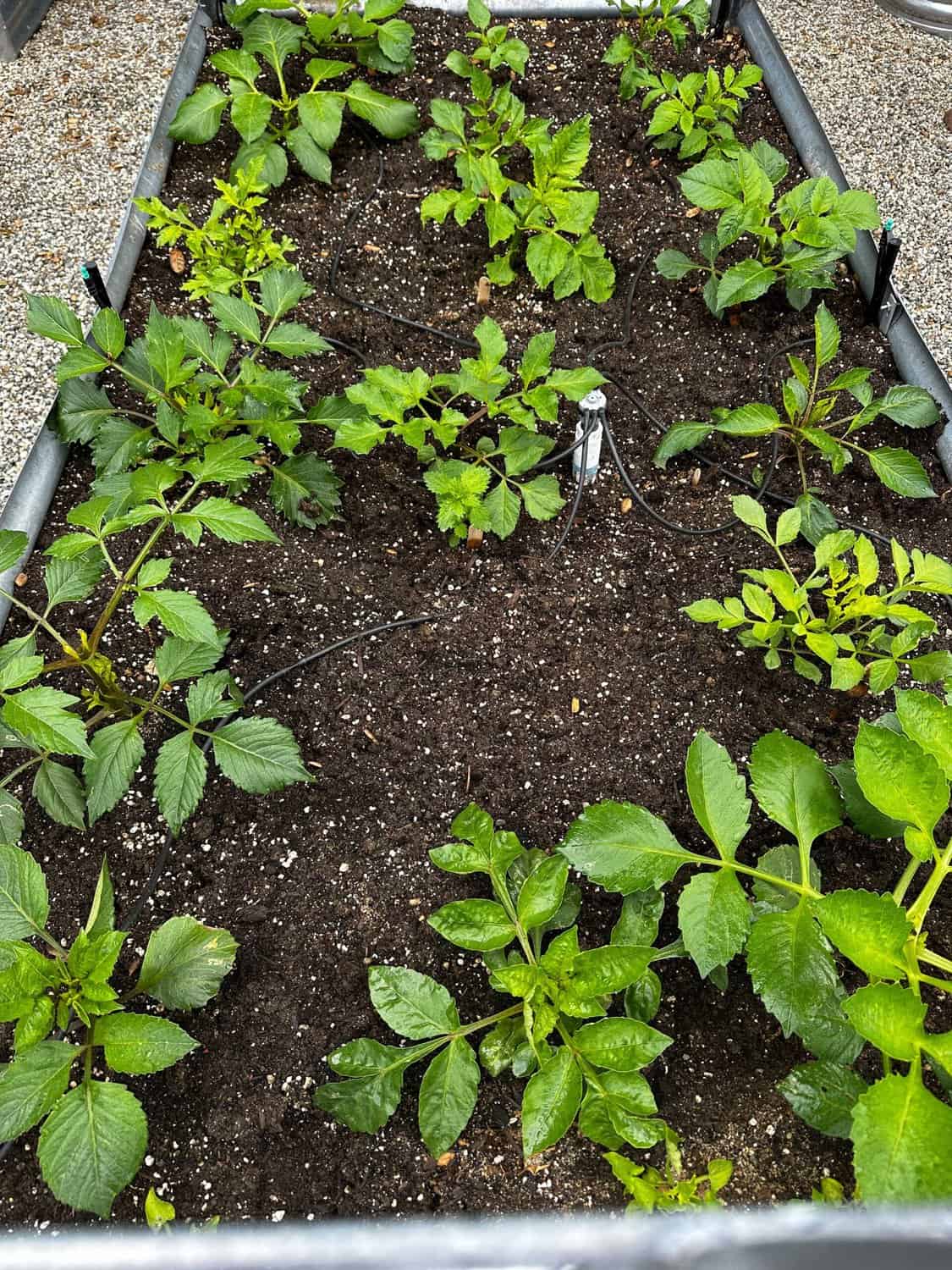
To plant your dahlia tubers, dig a small hole approximately 4 to 6 inches deep, and sprinkle a handful of bonemeal in the hole. Then lay your tuber in the ground with the eye of the tuber facing up and cover it with dirt.
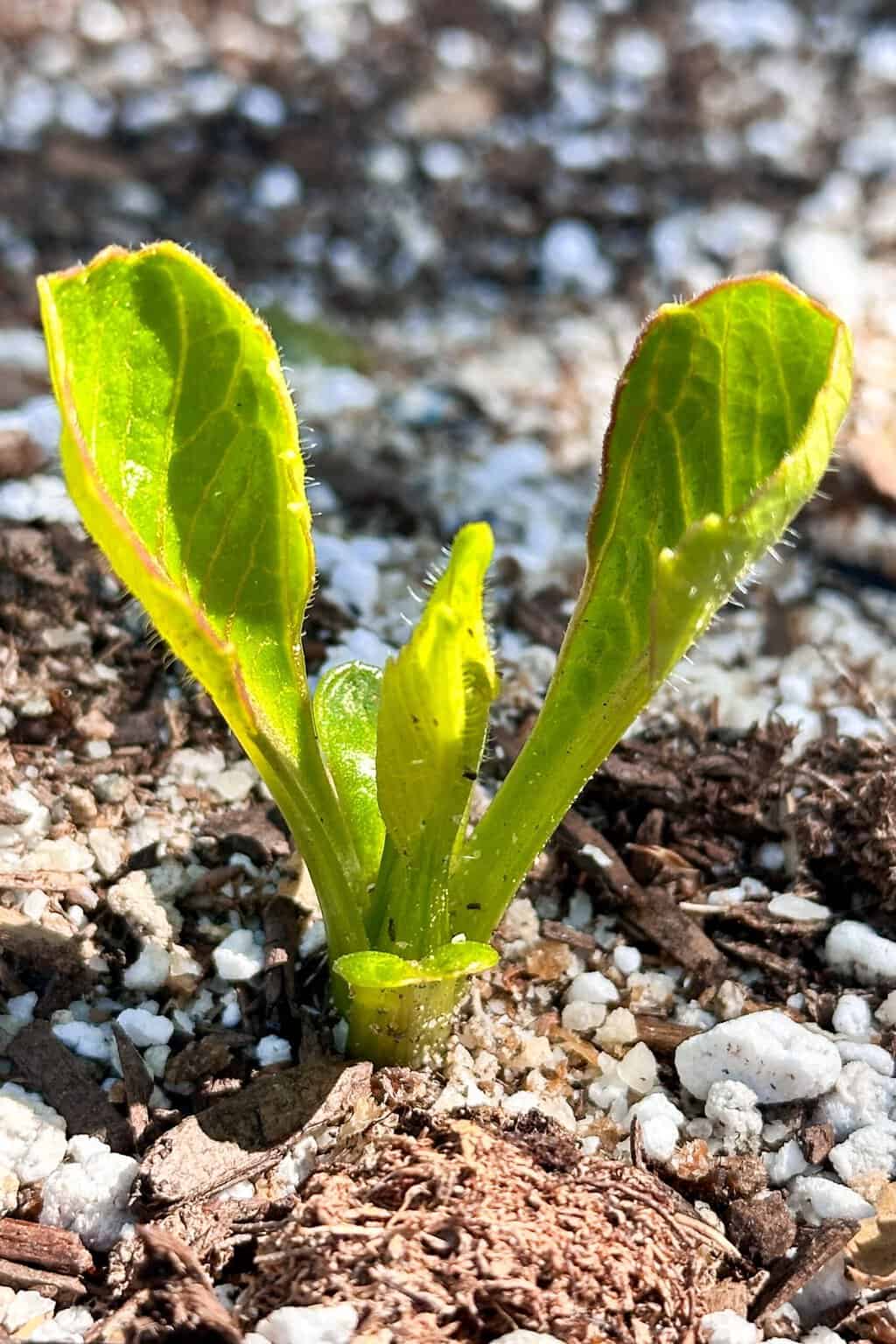
Do not water the plants until the tubers have sprouted. (If you water early, it can cause the tubers to rot)
Once the plants have sprouted, they should get a deep watering 3 to 4 times a week. You can also use a drip system or a soaker hose for extended periods.
How to Care for Dahlias: Tips for Growing Beautiful Blooms All Season Long
Watering and Fertilizing Dahlias
During the blooming season, it is important to feed your dahlias monthly to keep them healthy so they continue to grow beautiful blooms.
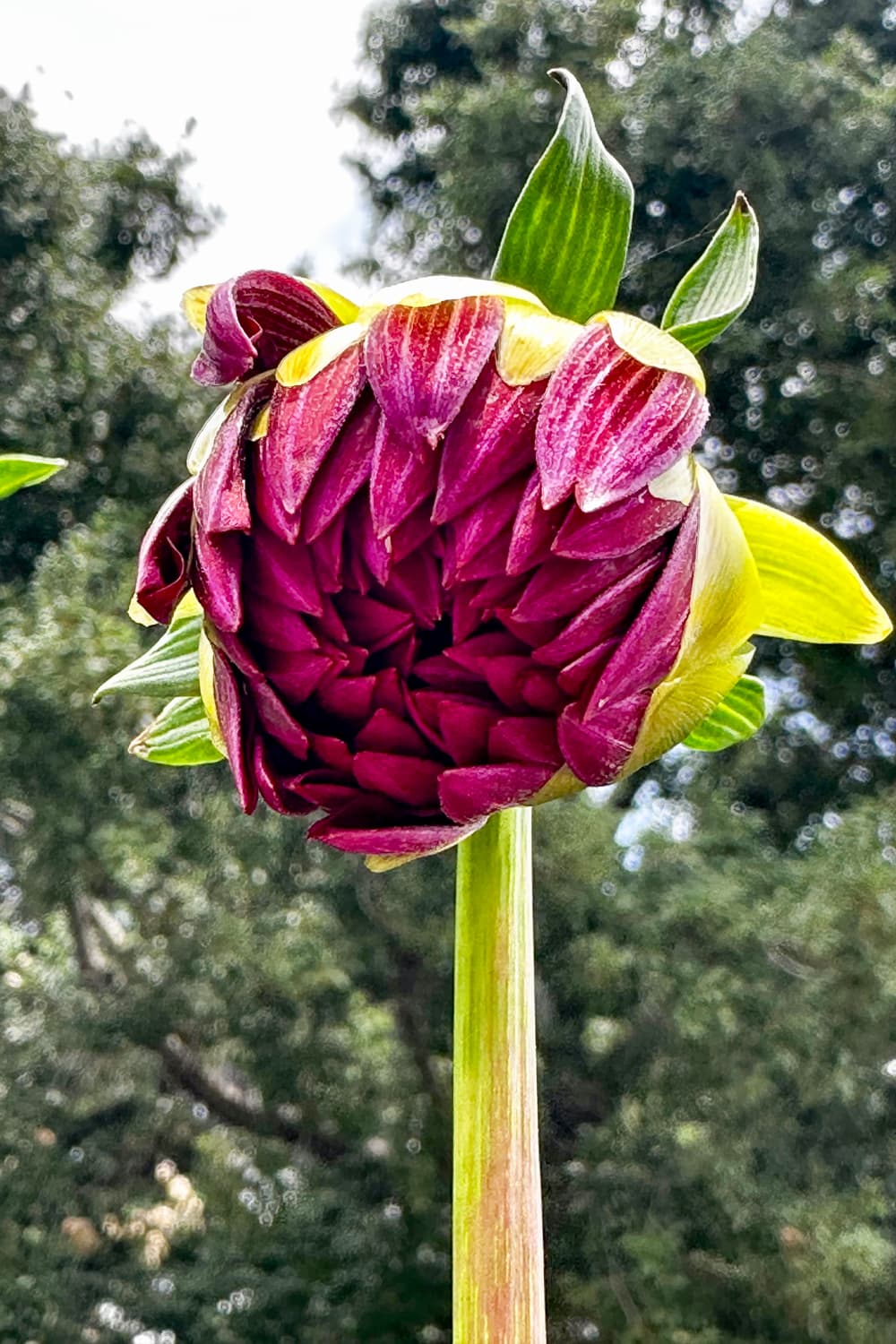
The best dahlia fertilizer I like to use is a fish emulsion mixture. (Read the directions on the bottle of fish emulsion for application instructions.)
And did you know you can also use coffee grounds? It’s true! Coffee grounds can greatly add to the health of your garden—plus they are free!
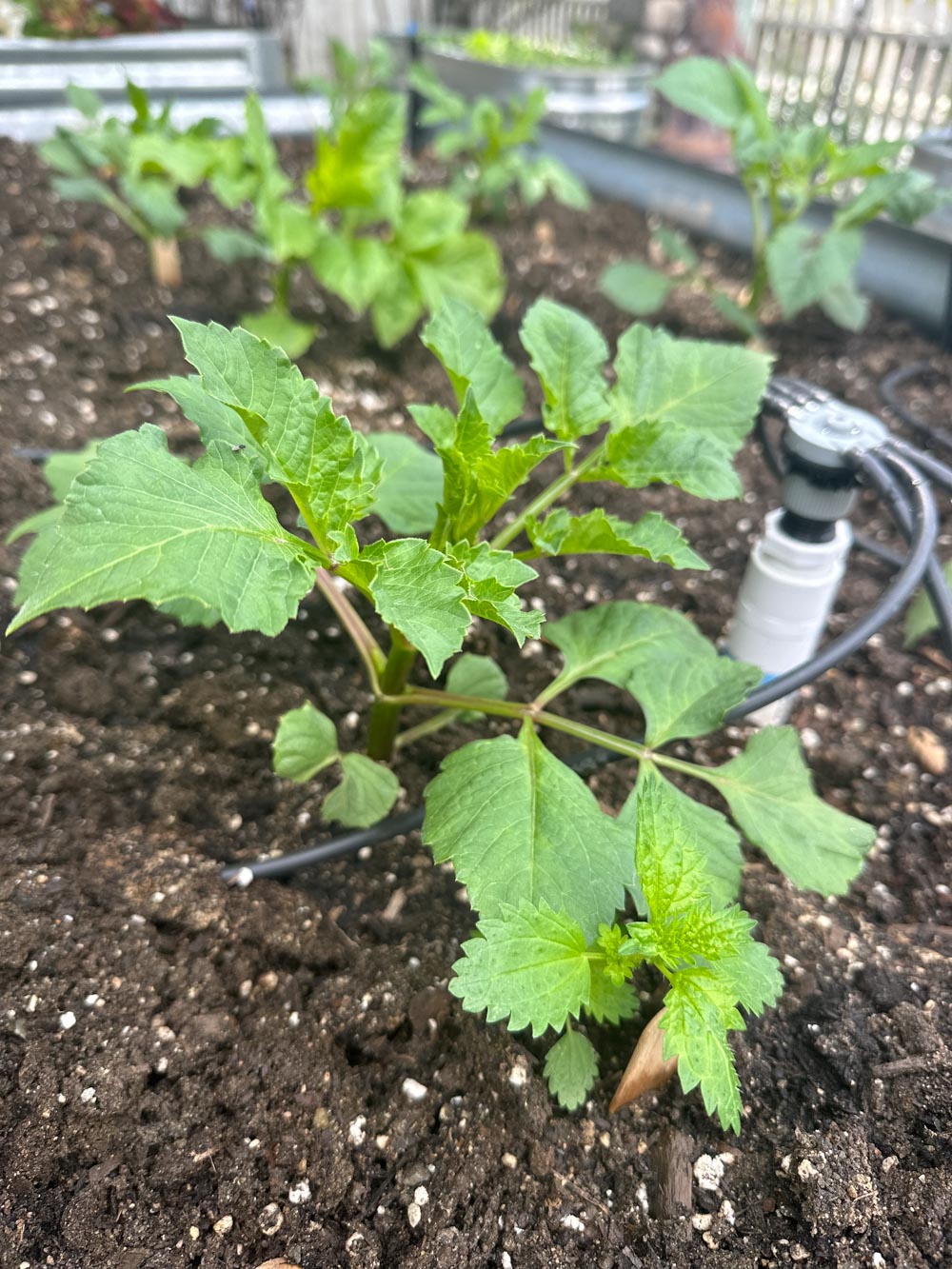
Additional dahlia care instructions including a good watering routine. Especially during hot and dry weather.
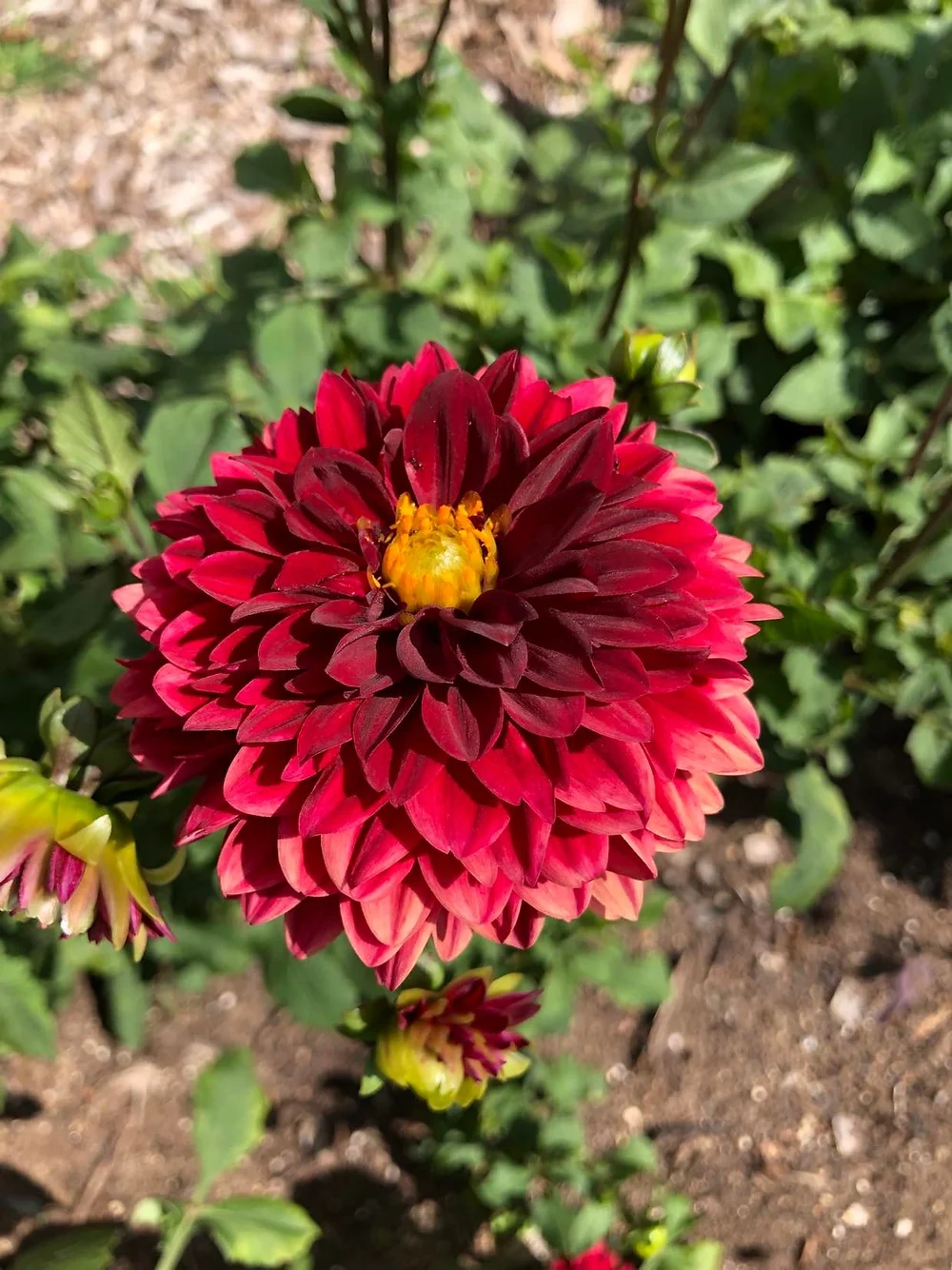
You should also use mulch around your plants to help retain soil moisture.
tip from wendy’s garden:
Did you know you can go to your local Starbucks, which will give you a large bag of spent coffee grounds for free? All you have to do is ask!
How to Take Care of Dahlias: Staking and Supporting Dahlias and Other Tall Perennials
Some dahlias can grow to a height of 6 feet with a very heavy stalk, so you may need to stake your plants.
Typically, you will find that the plant will bloom more efficiently if it has proper support. Staking also aids in aeration, protects from wind damage, and more.
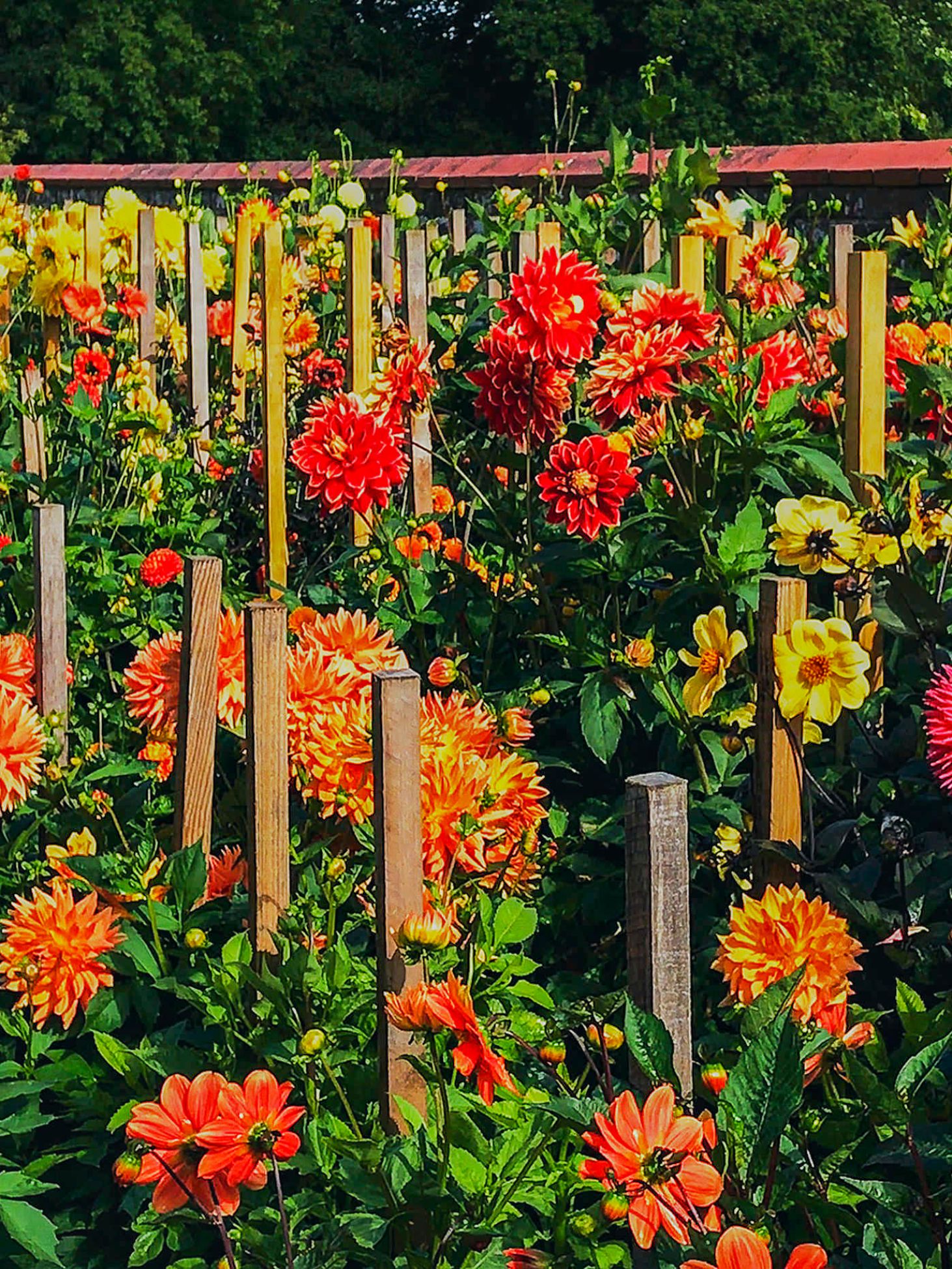
You can read up on staking your dahlias HERE. This article is full of great information.
How to Keep Dahlias Blooming: How to Pinch Your Plant and Why It is Important
Pinching your dahlias will help to grow a hardier plant and could even help them to bloom longer.
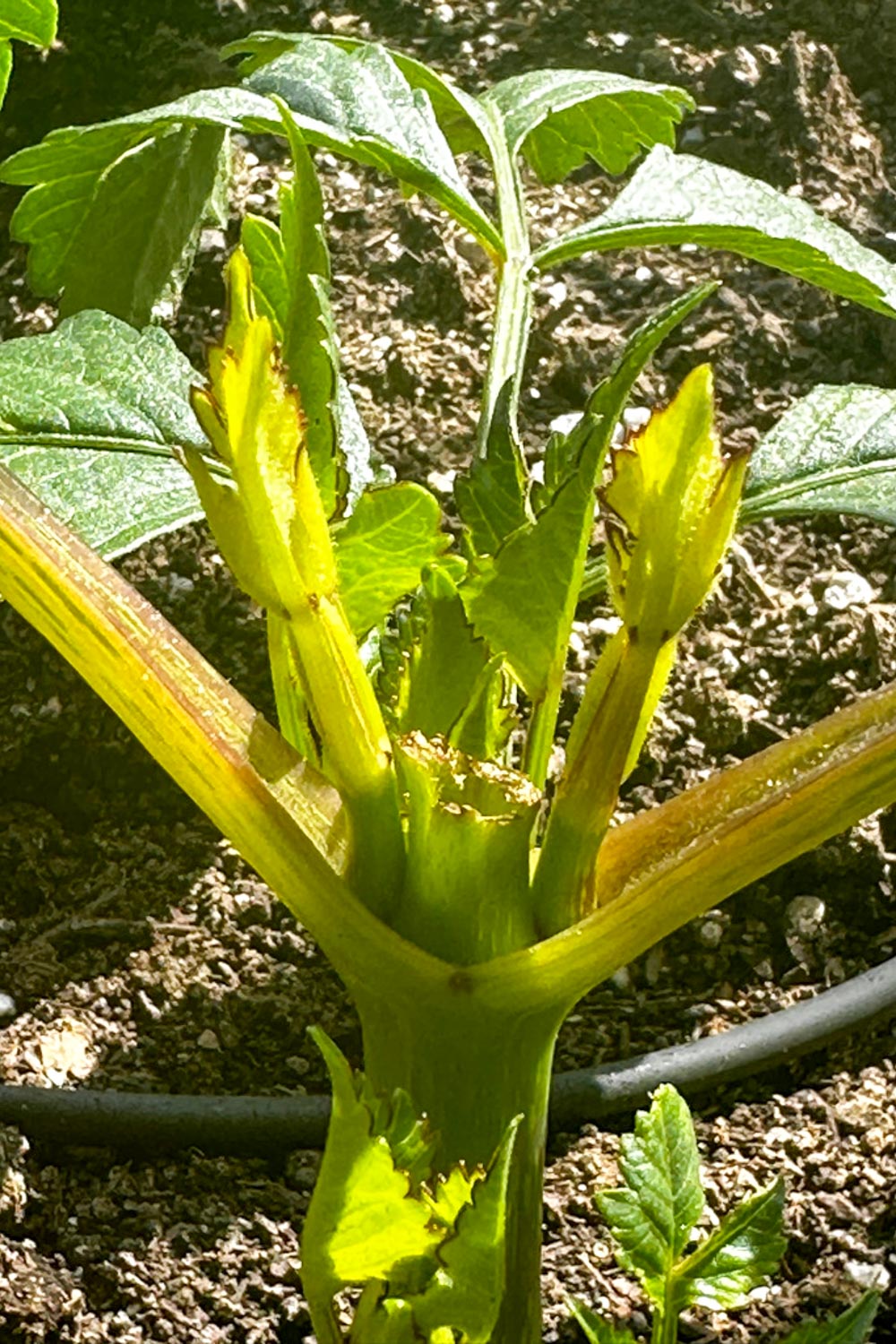
You want to wait until the plant has reached a height of approximately 10-12 inches tall. Then pinch off the newest sprout of leaves on the main stem.
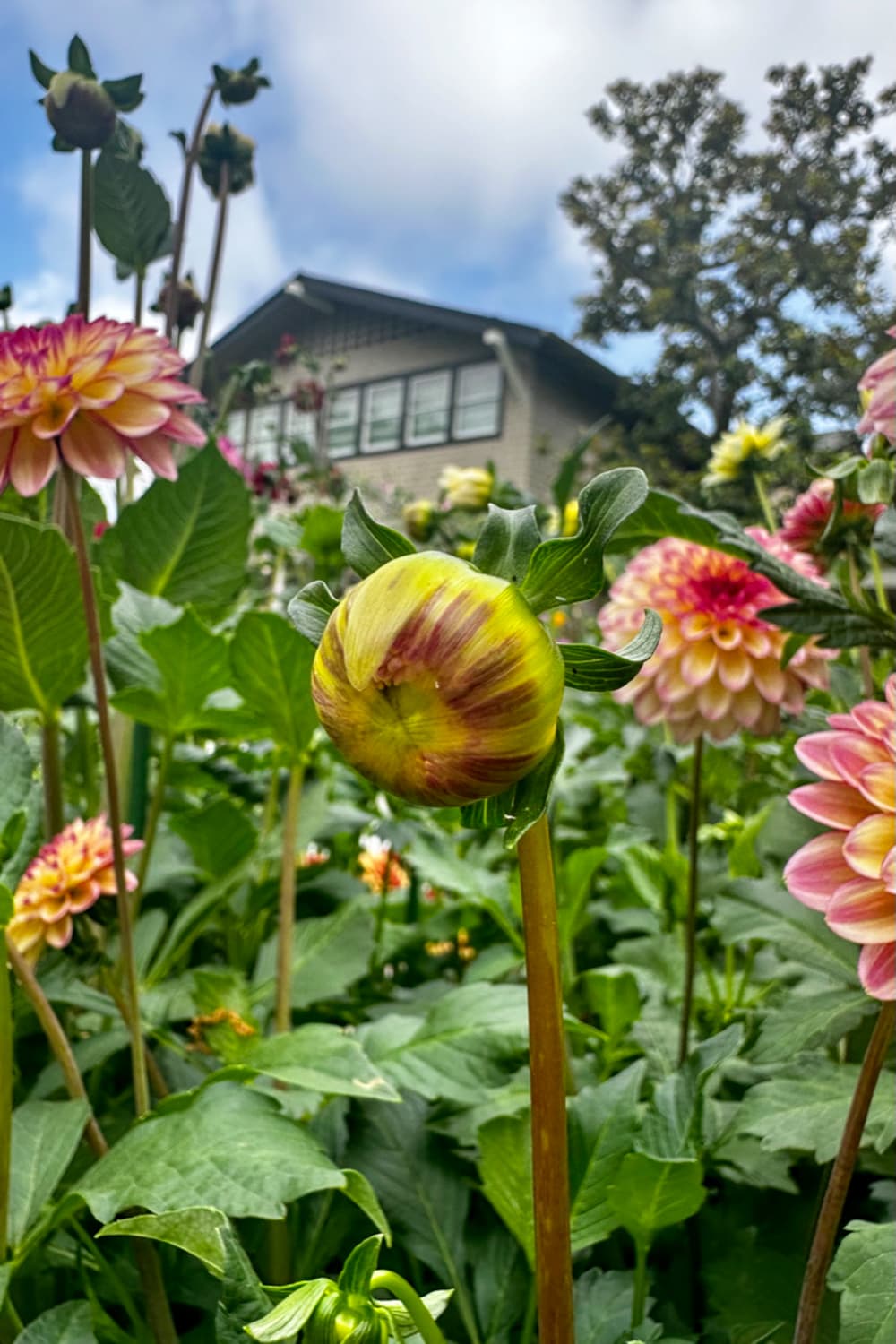
Doing this will encourage more lateral growth, which gives you a bushier plant and more flowers to enjoy throughout the growing season.
Protecting Your Dahlia Flower Plant from Common Pests and Diseases
Unfortunately, small common garden pests like snails, slugs, earwigs, caterpillars, grasshoppers, and thrips love to fill their bellies with dahlias.
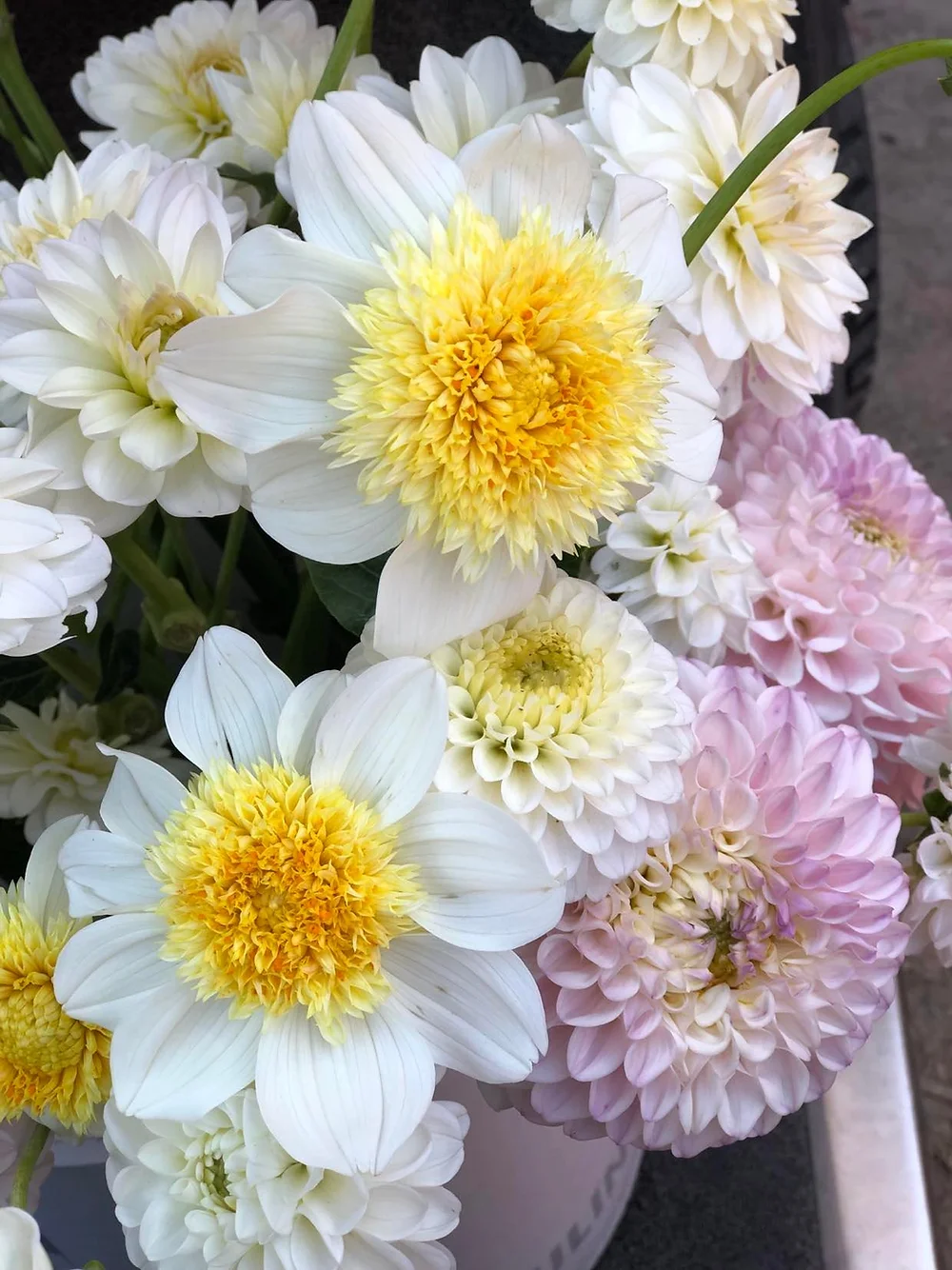
Having healthy plants is your best defense. However, at times you need a bit of help to keep the pests at by.
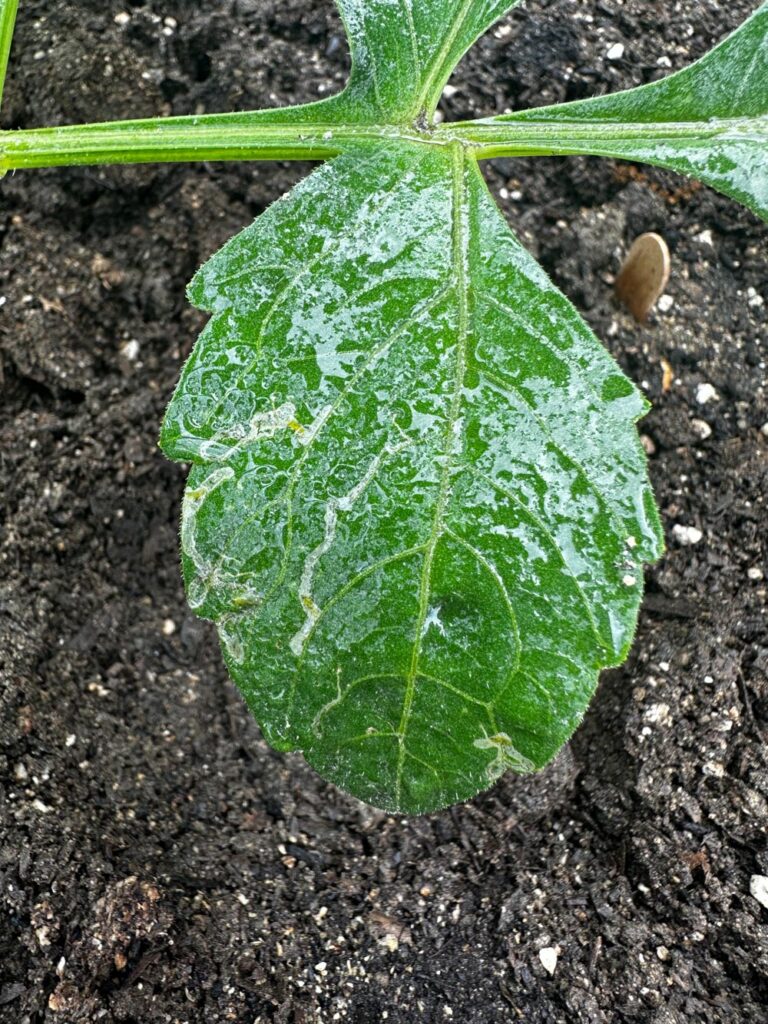
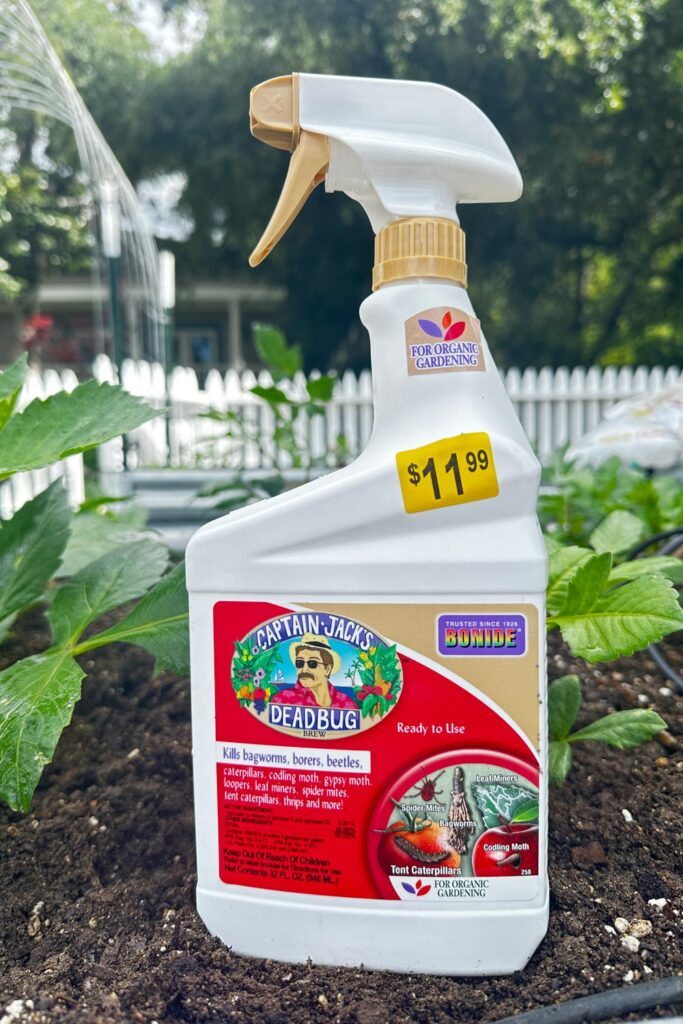
You do not want to use pesticides that will hurt insects that are beneficial to your garden like bees and butterflies, but there are some options you can try like Bacillus thuringiensis, a natural bacterium.
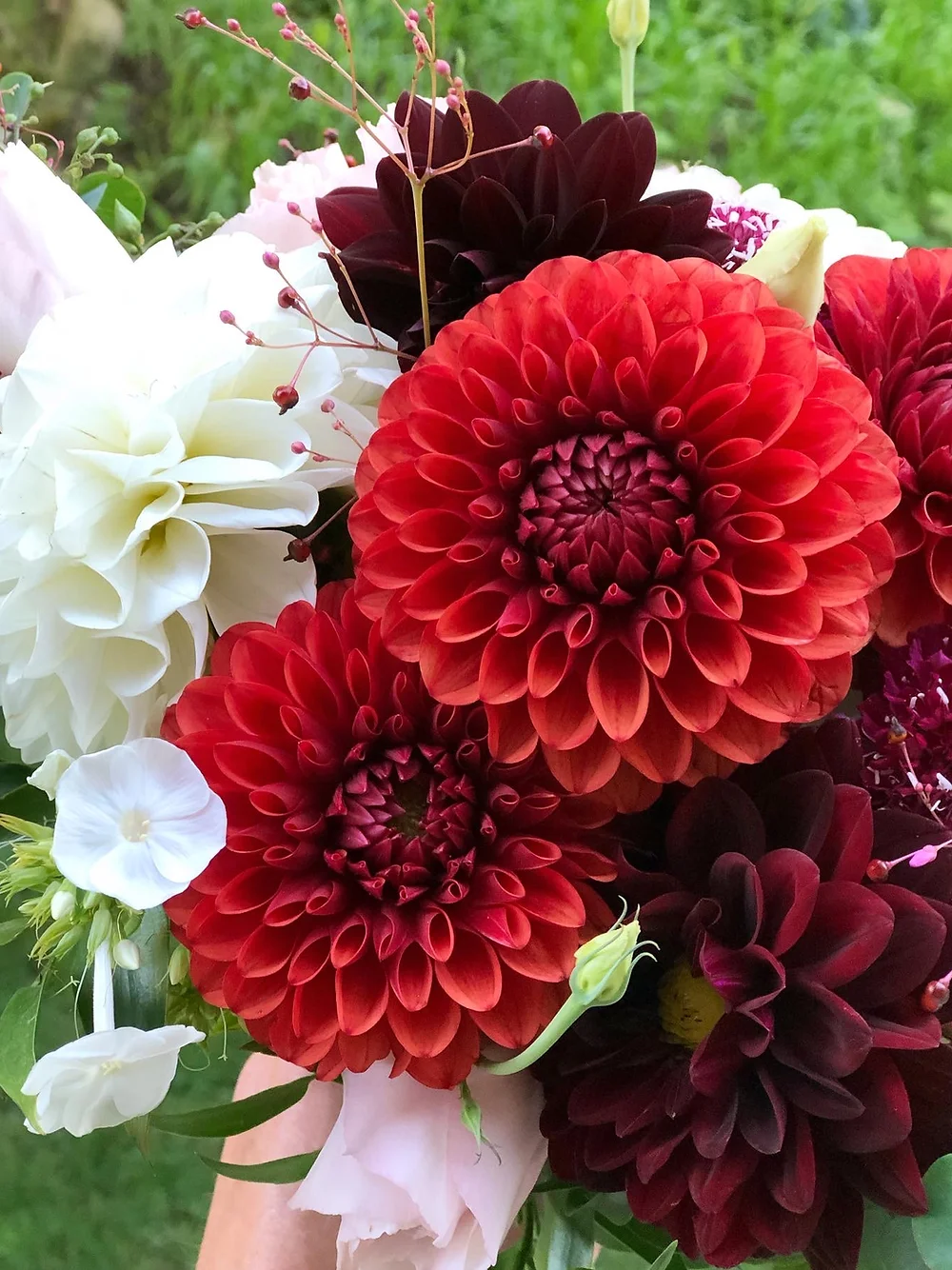
Keeping your beds clean and free of debris where pest like to hide out is also a good deterent. Early morning is the best time to inspect for bugs. You can often remove them with your fingers or use a mild insecticidal soap.
Occasionally dahlias can also be susceptible to fungal disease. To help prevent fungal infection in your garden, begin by planting your dahlias 18-24inches apart, so they have proper aeration.
If you happen to see a fungal disease starting, snip off the leaves or buds and then treat them appropriately.
Deheading Your Dahlias
Deadheading is the removal of spent blooms that are past their prime, and it is an important step in the growing cycle of dahlias to help keep them healthy and thriving.
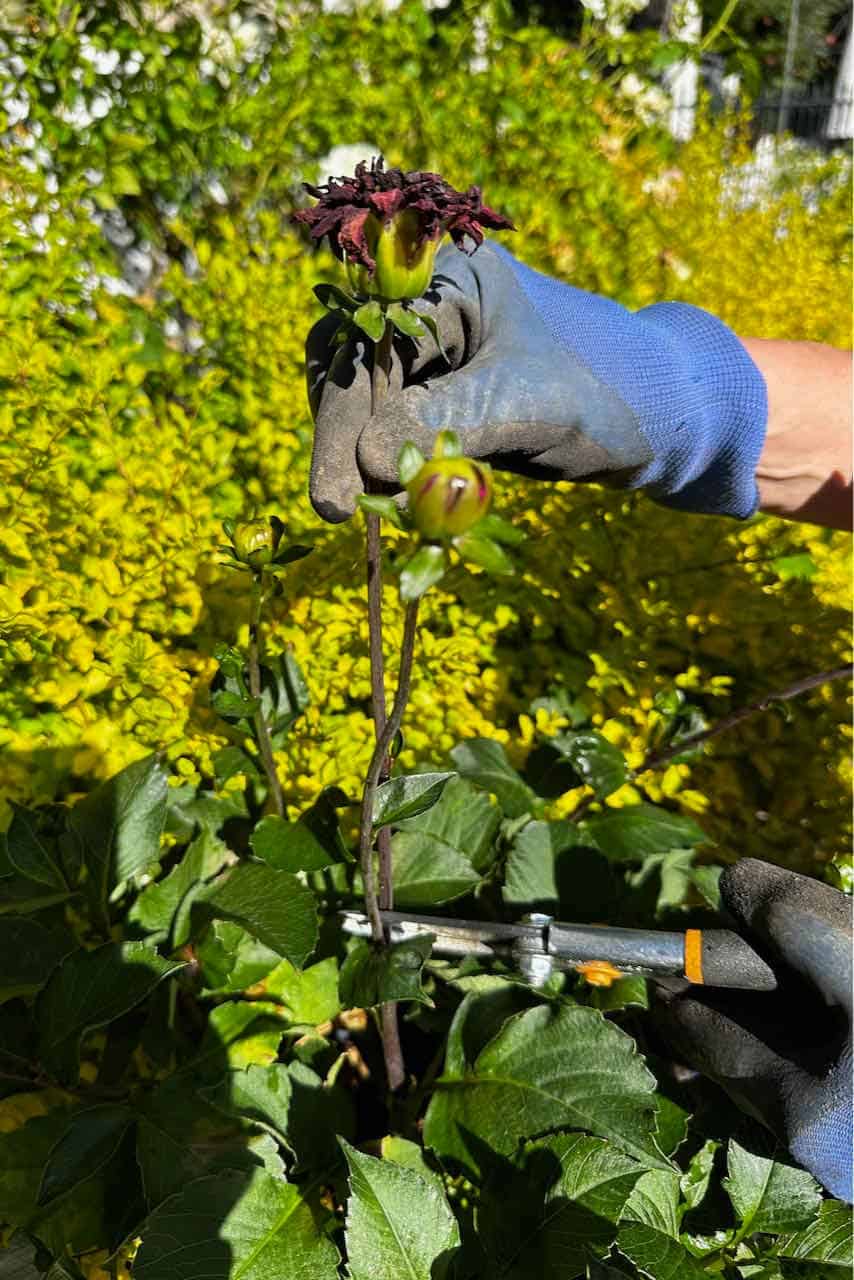
When it comes to dahlias, deadheading is highly beneficial for several reasons.
- Removing the faded blooms encourages the plant to produce more flowers, resulting in an extended blooming season.
- Deadheading also helps improve the overall appearance of the plant by tidying up your garden, container, or raised bed.
- Additionally, removing spent flowers redirect the plant’s energy towards new growth and development rather than seed production.
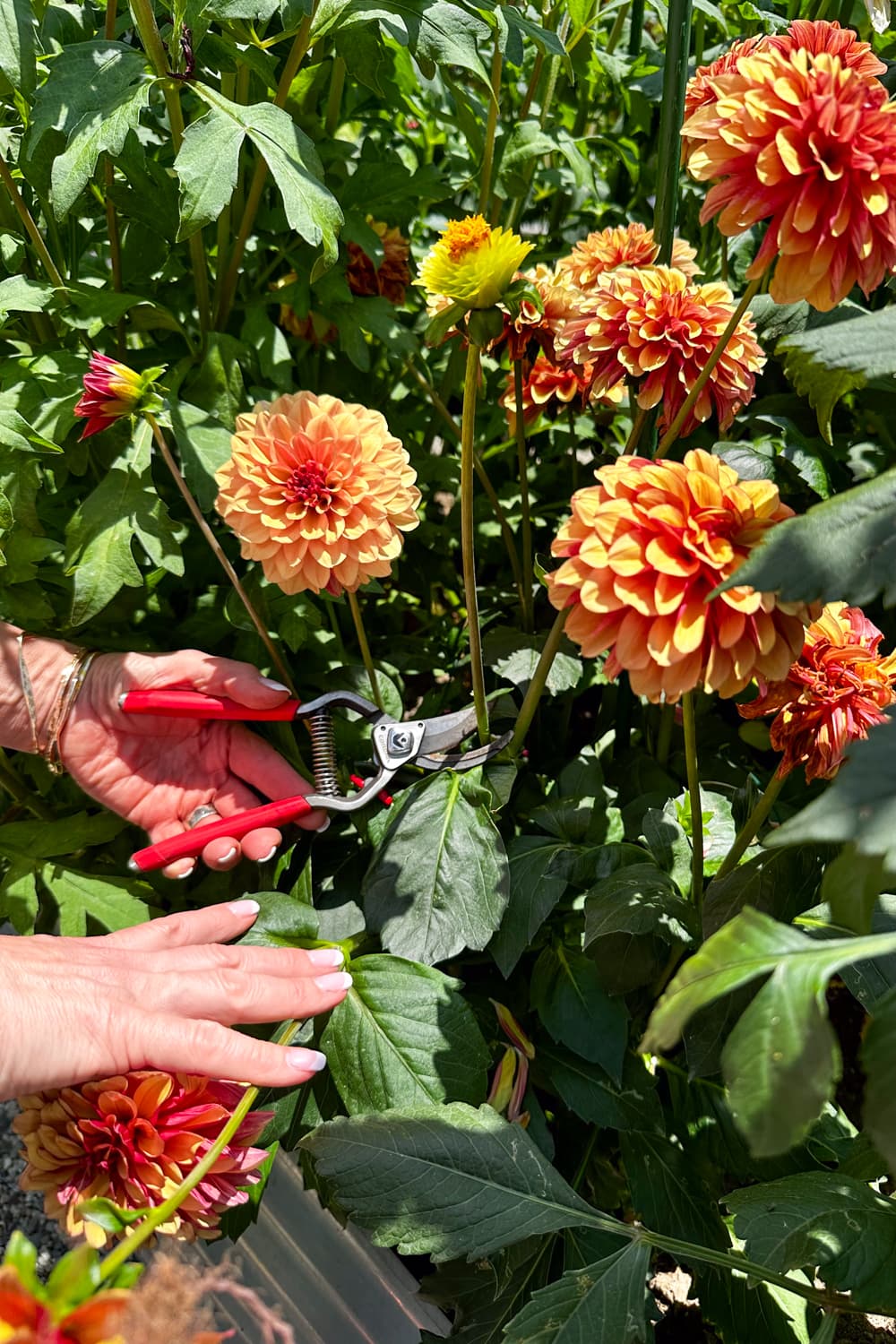
Timing is everything when it comes to deadheading dahlias. You want to remove the spent flowers at the right stage to maximize the plant’s blooming potential.
Wait until a dahlia flower has completed its entire cycle, from the initial bloom to the point where it starts to fade and wither. This is the ideal time to deadhead.

To deadhead dahlias, use a pair of clean, sharp pruning sheers to cut the bloom off at the bottom of the stem where the two leaves meet.
Dahlias generally require regular deadheading throughout their blooming season. Depending on how quickly the flowers fade, I recommend deadheading dahlias every few days or at least once a week.
However, it’s worth noting that individual dahlia plants may have variations in their blooming patterns, so it’s important to observe and adjust the deadheading frequency accordingly.
Harvesting Your Dahlias
It is best to cut your flowers early in the day when it is cool. Then place the fresh-cut blooms in a glass of hot water (160-180 degrees) and let it cool for an hour.
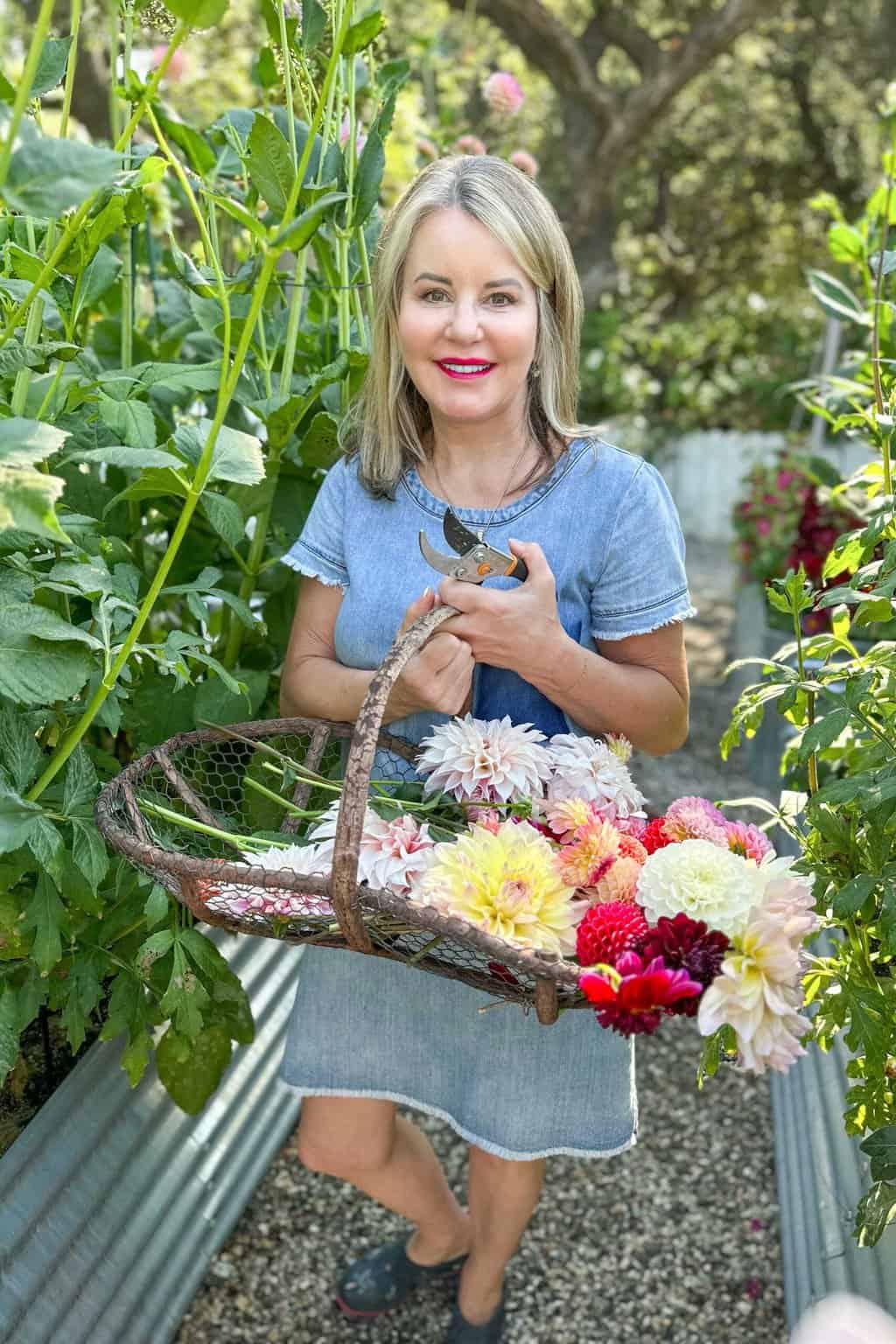
One of my favorite things about growing dahlias is all of the stunning floral arrangements you can create from them.
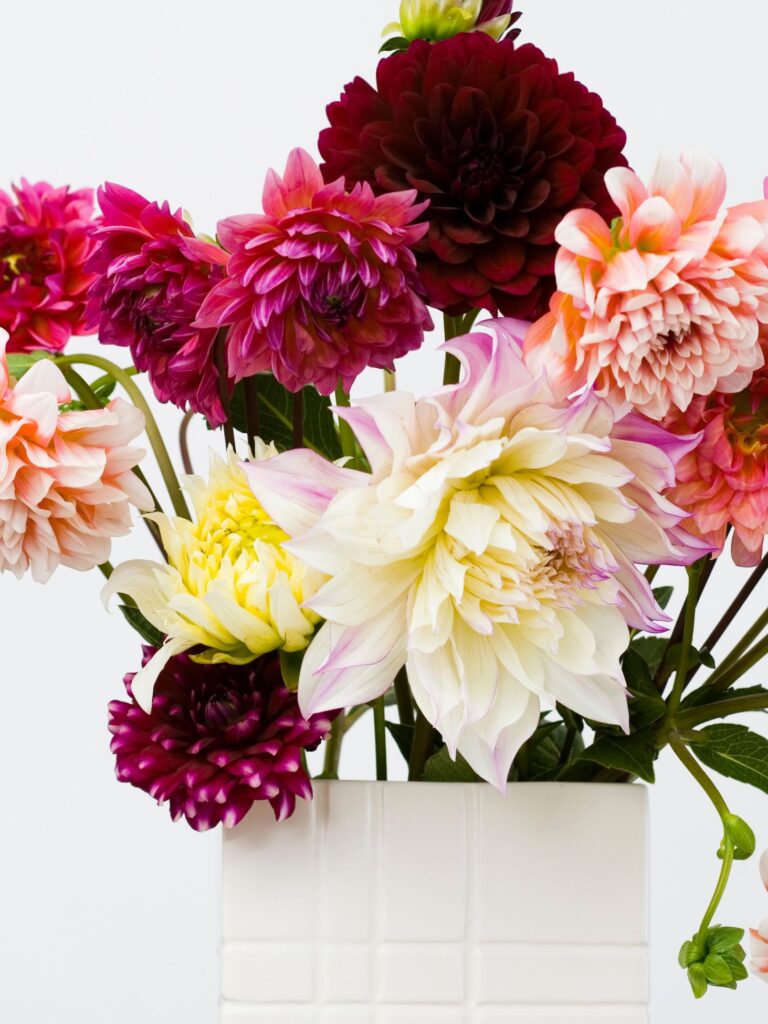
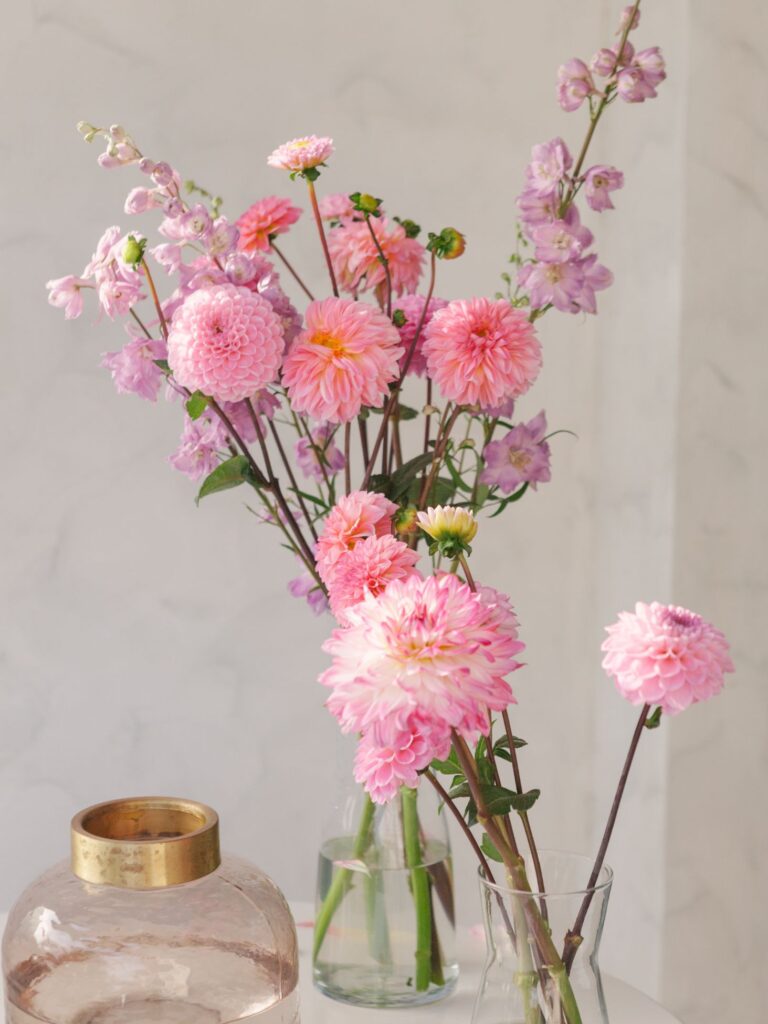
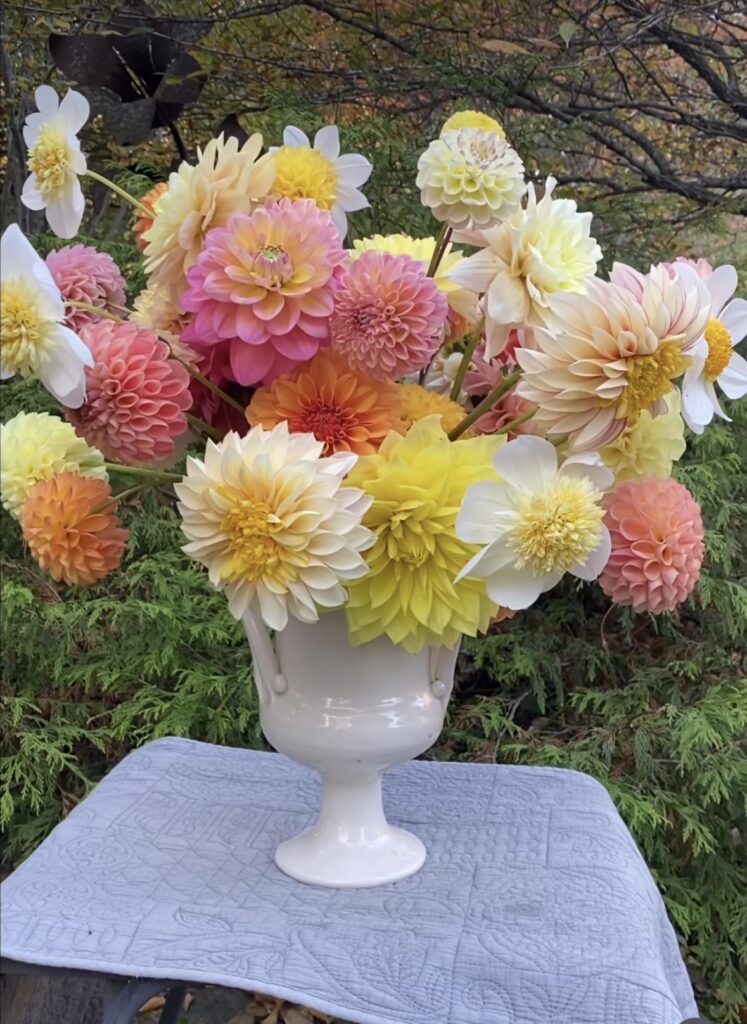
These are just a few of my favorites. To help keep your cut flowers fresh longer, replace the water in your vase daily and add a bit of fresh flower food.
When to Cut Back Your Dahlias
Once your plants have finished blooming and have died back you want to cut the foliage off, leaving about a 3-4 inch stem sticking out of the ground.
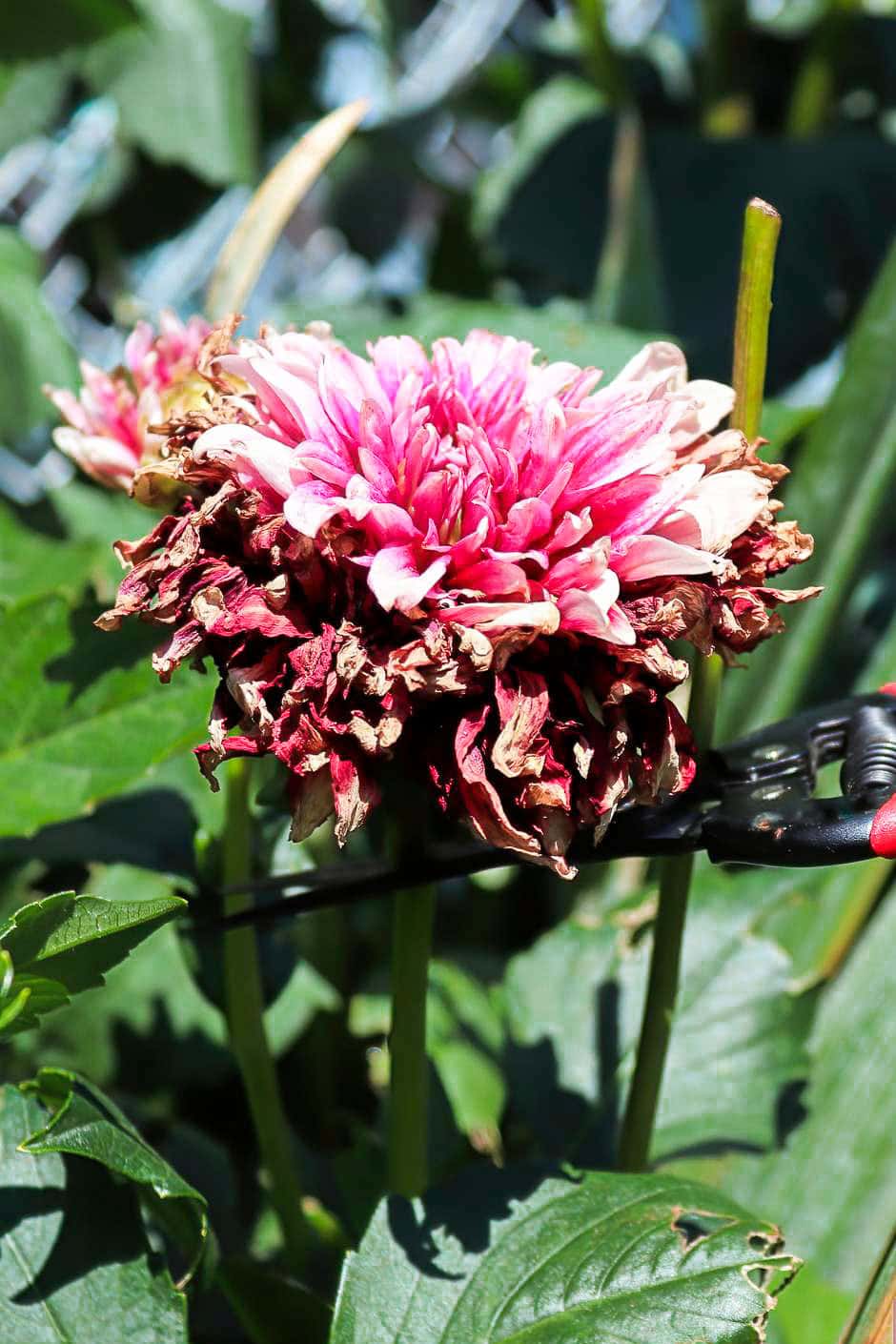
It is important to wait until after the first frost or when the foliage has turned brown and died back naturally. This usually occurs in late fall or early winter. Cutting back too early may prevent the tubers from fully maturing.
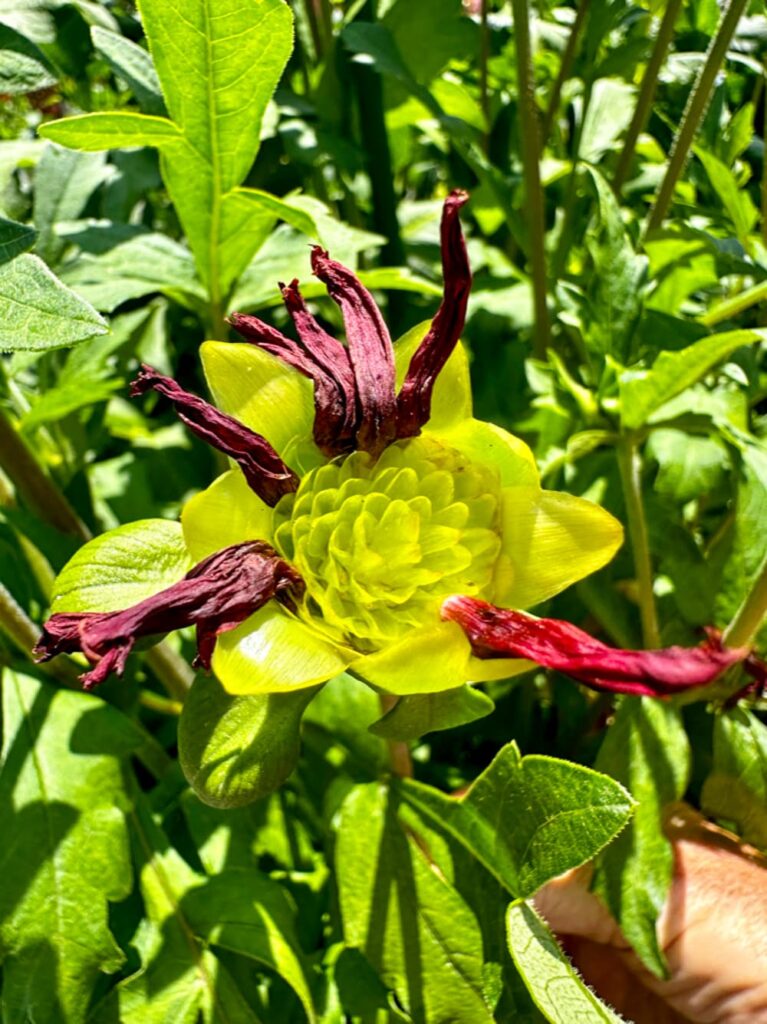
To cut back the dahlia stems, make a clean diagonal cut just above a node or bud. This promotes new growth in the following season.
Then trim off all the remaining foliage from the stems. Remove the leaves close to the main stems, leaving only a short stub.
tip from wendy’s garden:
Don’t forget to collect and discard the cut stems and foliage. Properly disposing of any diseased or infested plant material helps prevent the spread of pests or diseases.
Should You Overwinter Your Dahlias?
As I shared earlier, dahlias are considered perennials in hardiness zones 8-11, meaning you do not need to remove the tubers from your garden for the winter.
If you live in a colder hardiness zone, your tubers need to be dug up and stored in a warm area for the winter to protect them from the freezing temperatures.
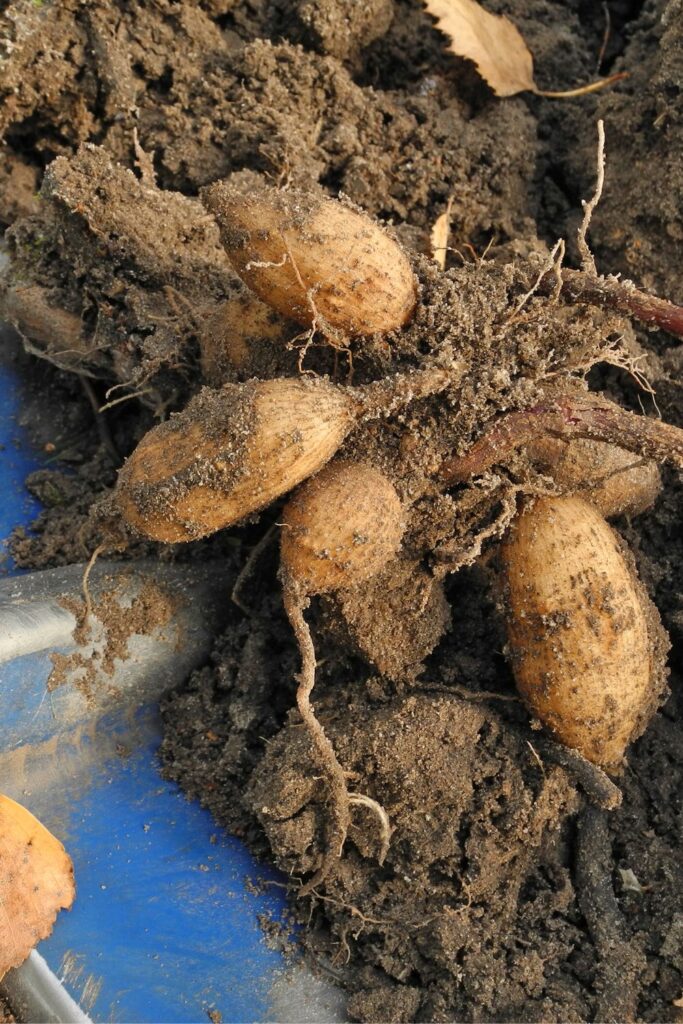
Then, use a pitchfork or a shovel to dig up the plant tuber. Shake off the access dirt and then let them dry in a cool area for a few days.
Once they are dry, place the tubers in a box of vermiculite or similar material and store them in an area that will remain at approximately 50 degrees or lower for the winter.
How to Propagate Dahlias
Dividing Your Tubers
When you are ready to divide your tubers for the spring, be sure to cut each piece with an eye.
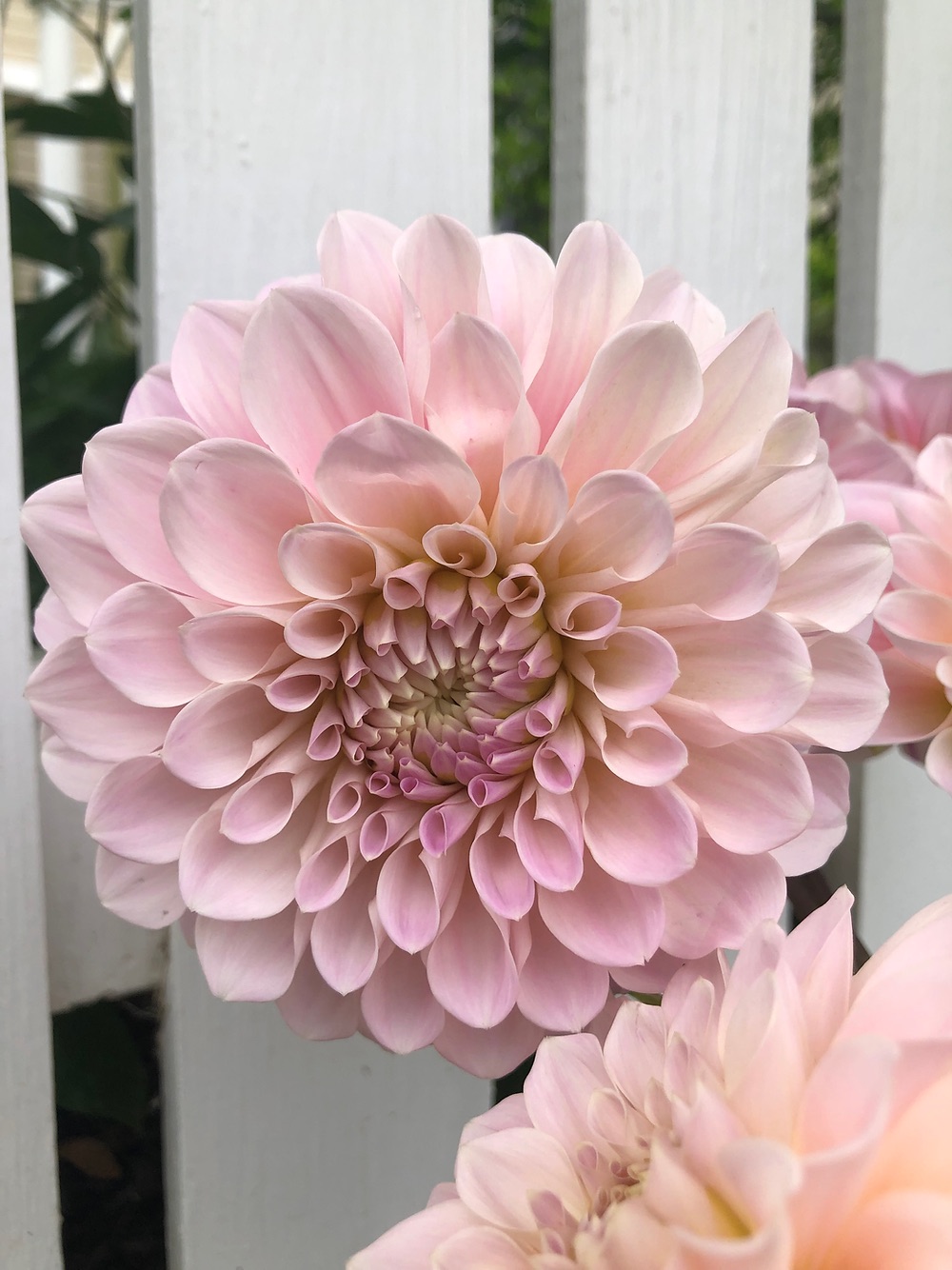
Allow each piece to dry for a few days before you plant them.
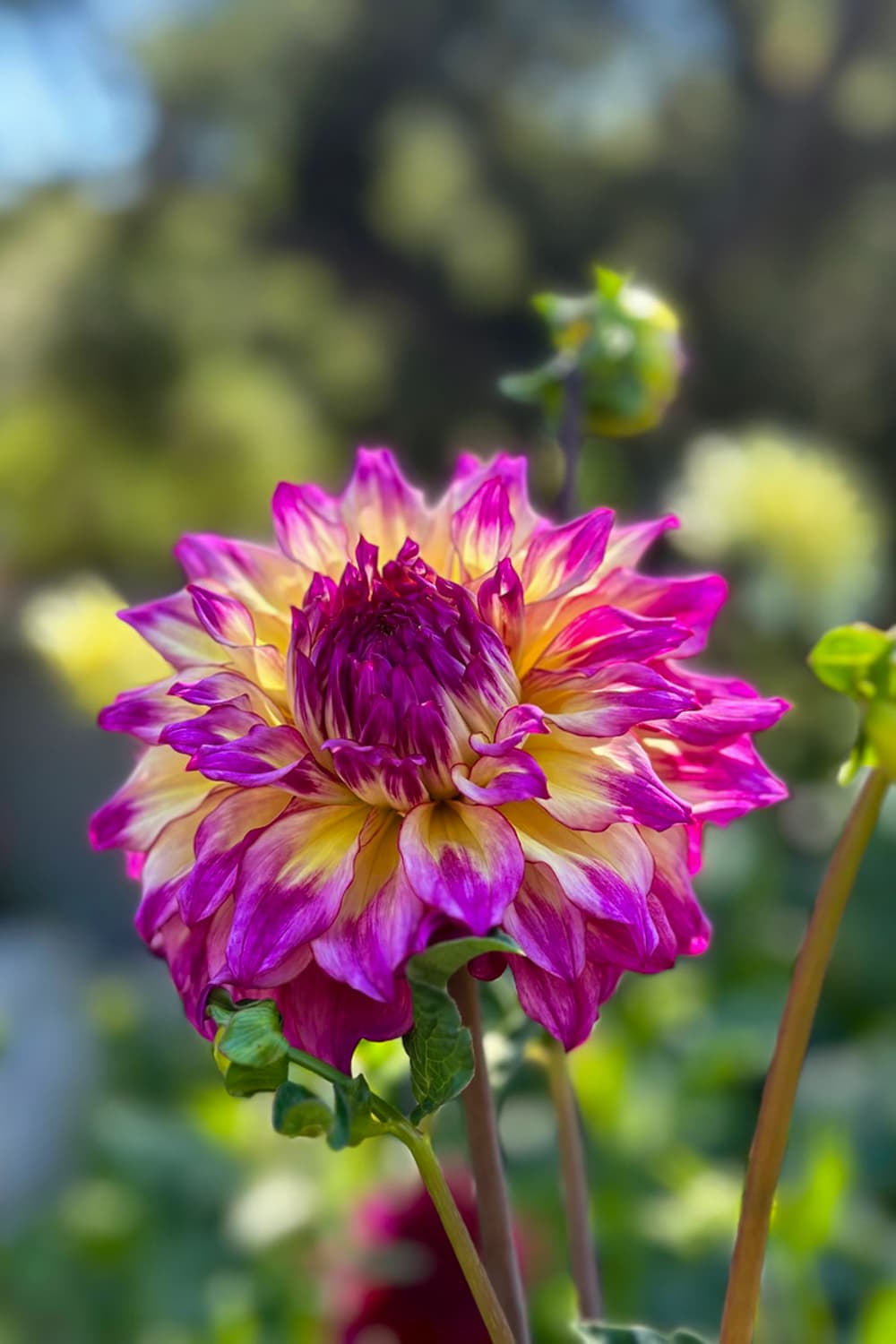

Other Dahlia Posts from WM Design House
If you love this post, you might also enjoy some of my other posts about growing and caring for dahlias.
Shop This Post
Wrapping Up
Now that you know everything there is to know about Dahlias, I hope you grow some in your garden. They make the most beautiful cut flowers you will enjoy all summer.
Happy planting!


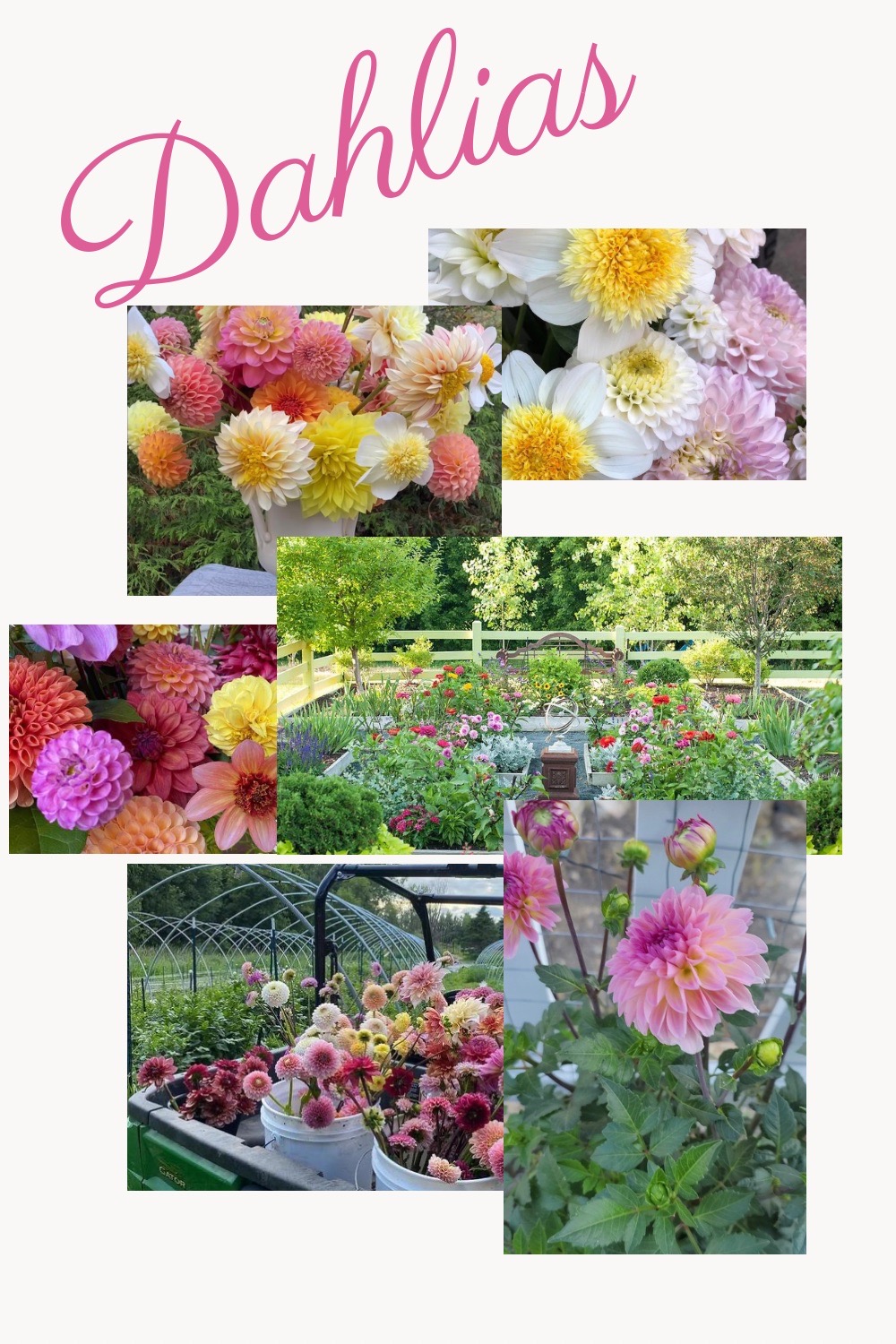
More about me!

Hello, I’m Wendy – a dedicated homemaker with a deep passion for decorating, gardening, cooking, and crafting. I find joy in harmonizing beautiful elements to fashion a space that is both comfortable and inspiring. I will help you create a beautiful home, one project at a time.
Connect with Wendy
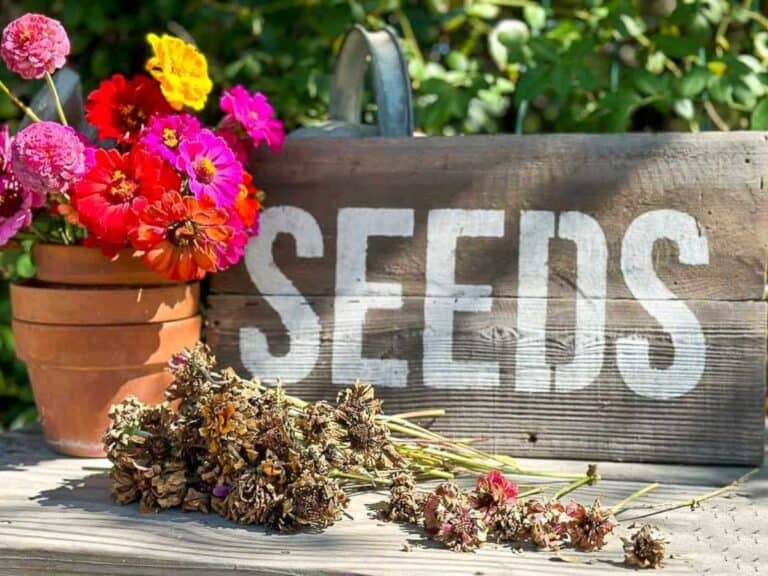
Seed Exchange Swap: Growing a Beautiful Home Garden for Free
Learn how to easily and successfully organize a flower seed exchange with a few of your gardening friends!
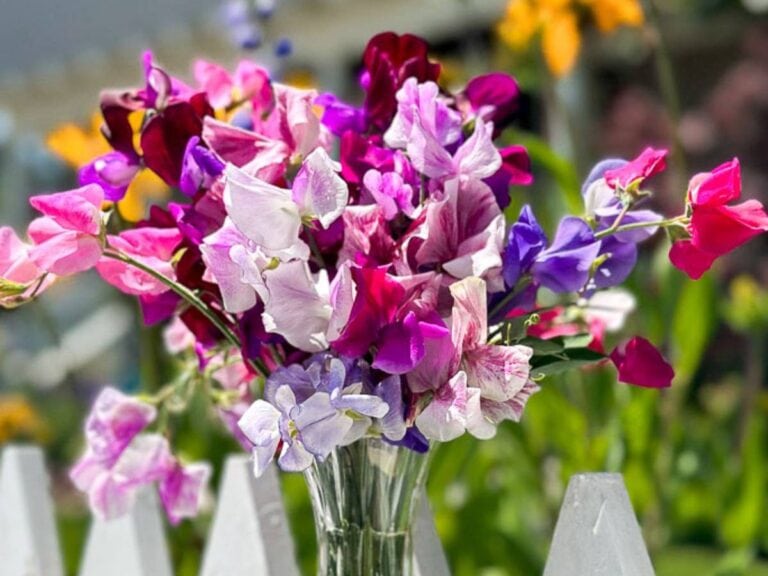
Sweet Pea Seeds: How to Harvest, Sow and Grow
Learn how to harvest, sow, and grow sweet pea seeds for a vibrant display of fragrant flowers. Discover tips for extended bloom time
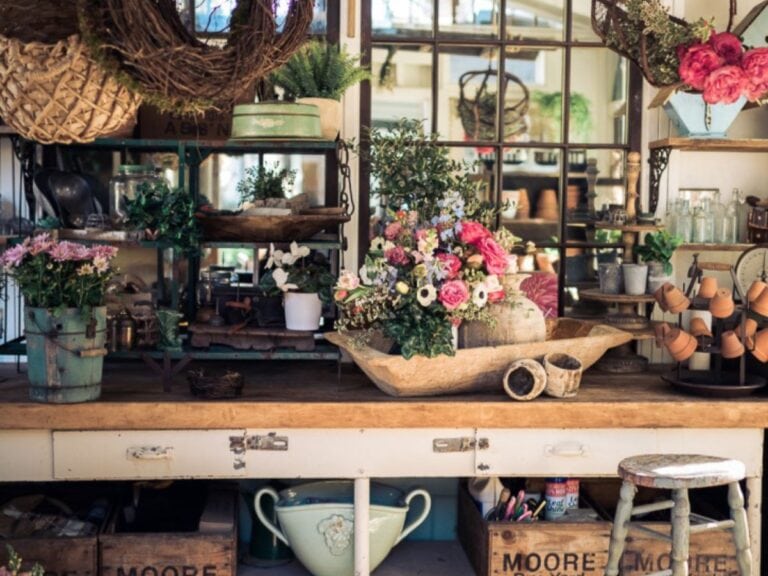
Thrifting Tips for Beginners- A Guide for Thrift Shopping
Are you new to the world of thrifting? Let me guide you with some of my best thrifting tips for beginners to help you thrift like a pro! I am thrilled to join my friends Mary Jo @masterpiecesofmylife and Rachel @theantiuedjourney for another chapter of THRIFTED GOODIES! Whether you’re a seasoned thrifter who loves the…
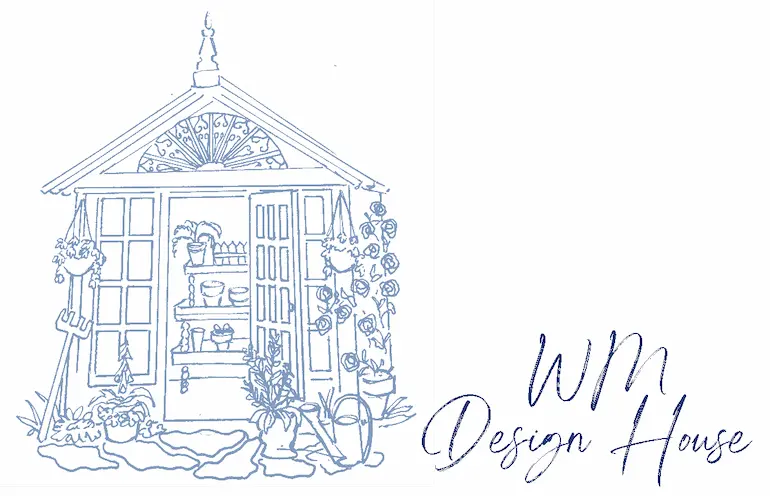
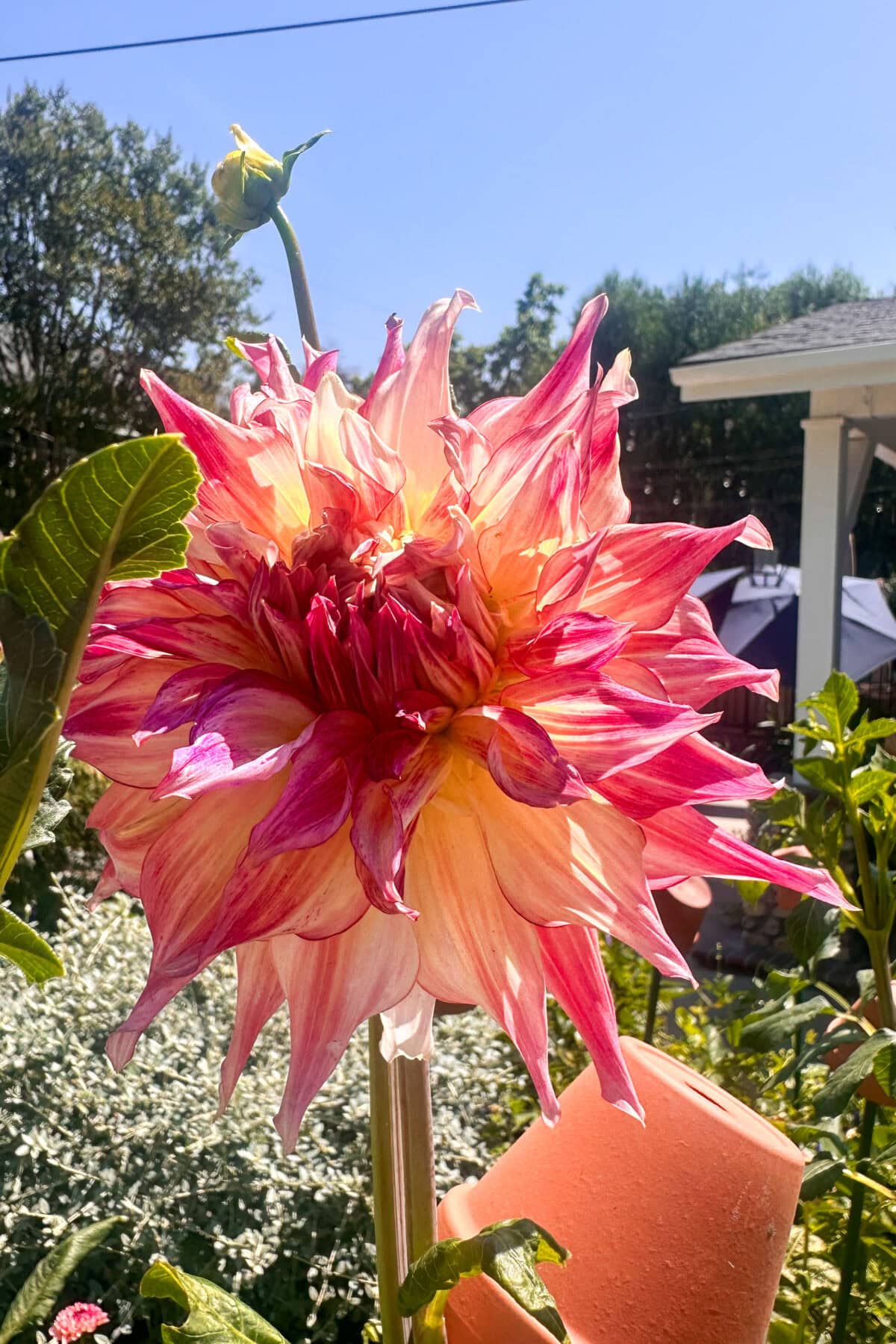
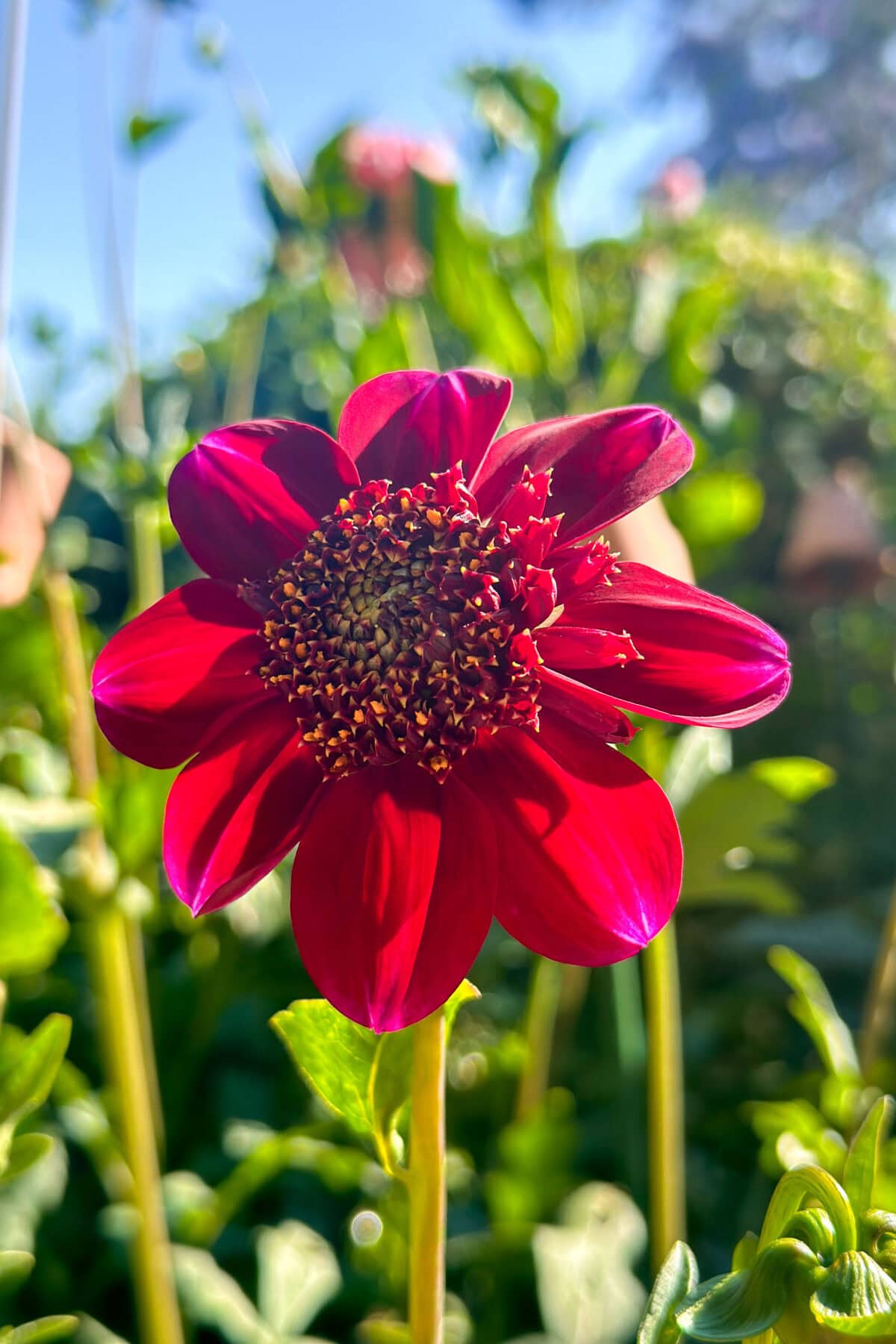
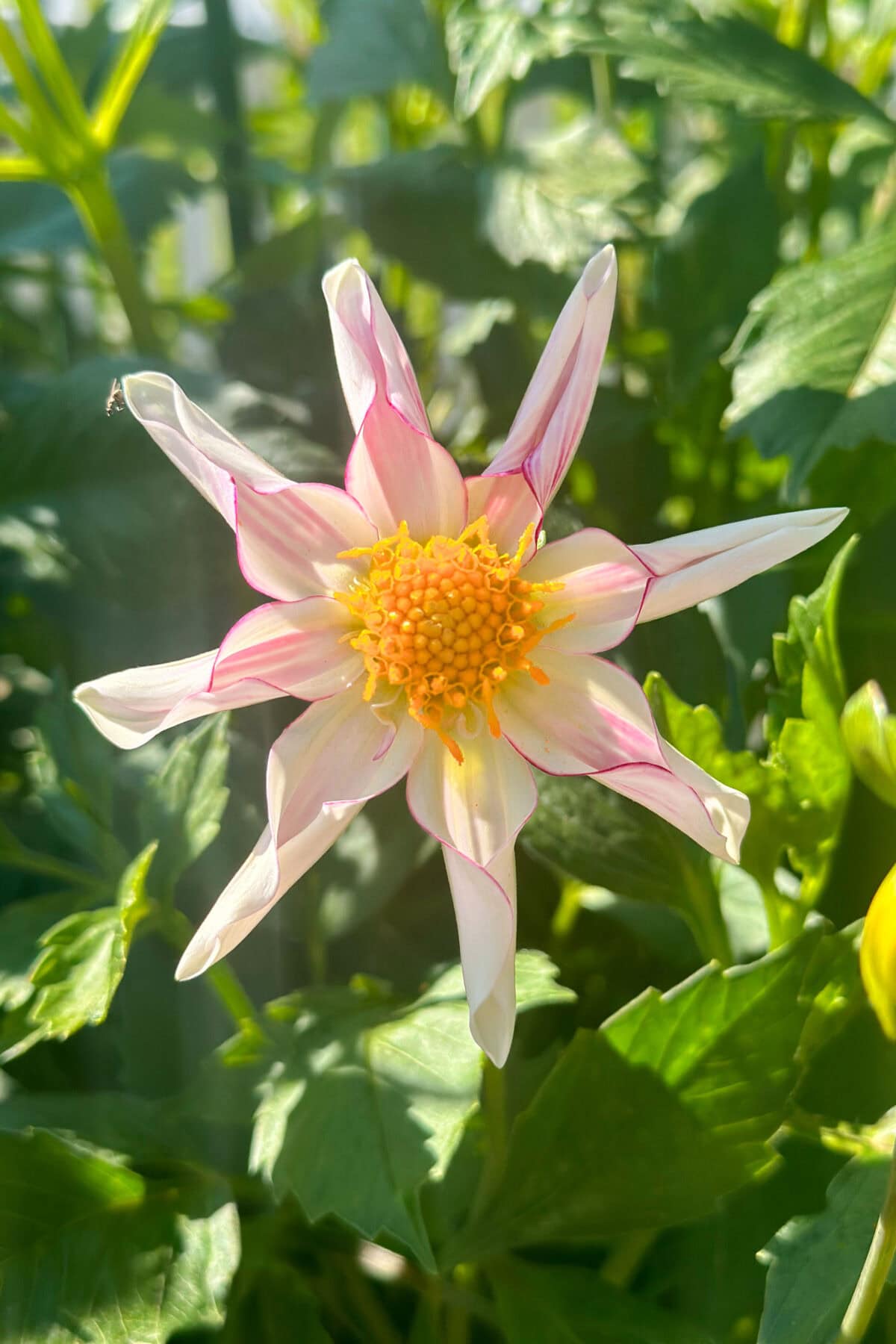
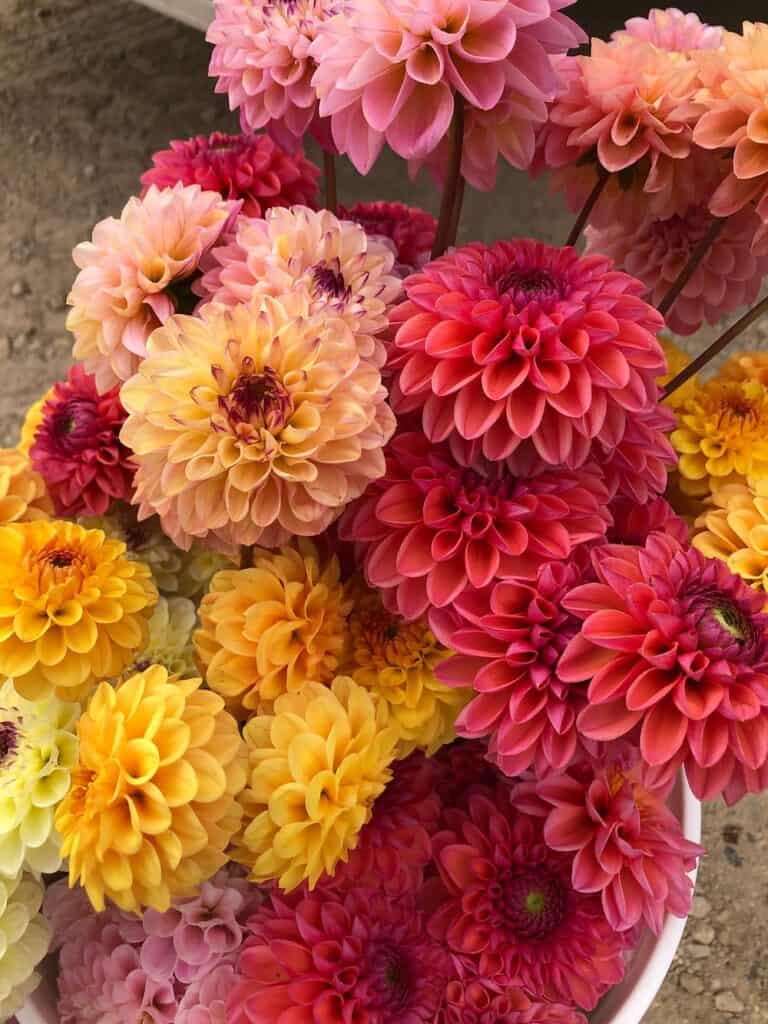
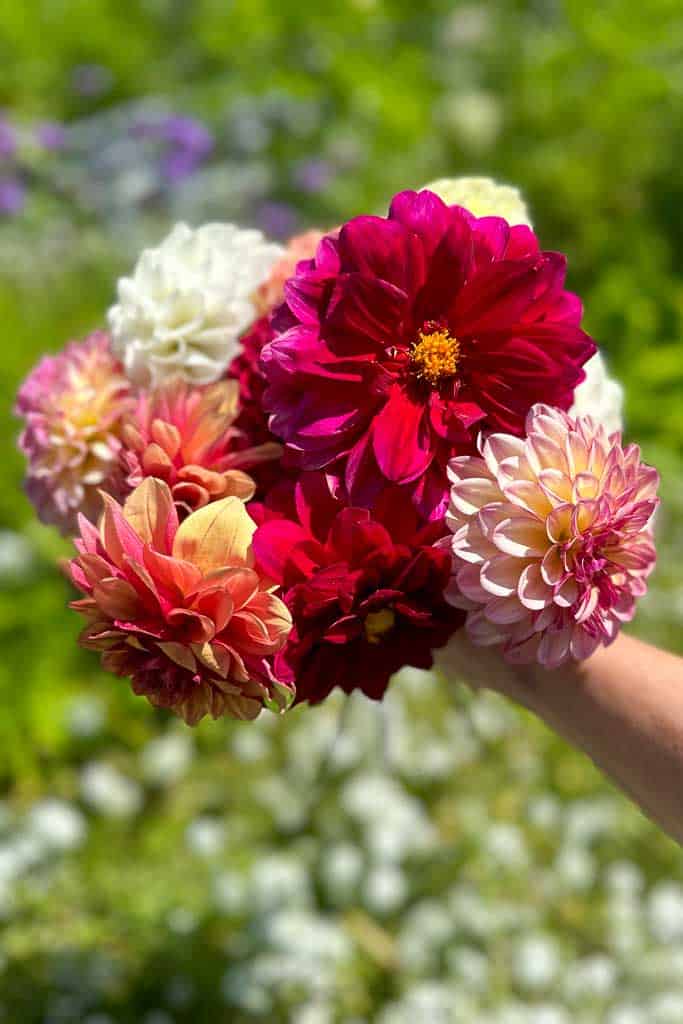
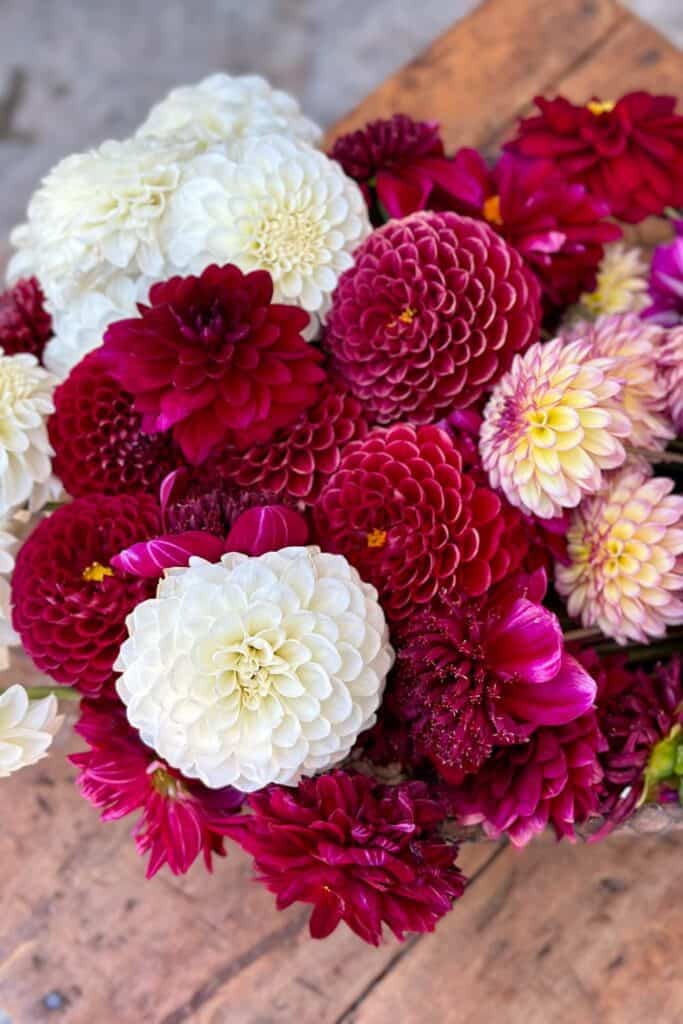

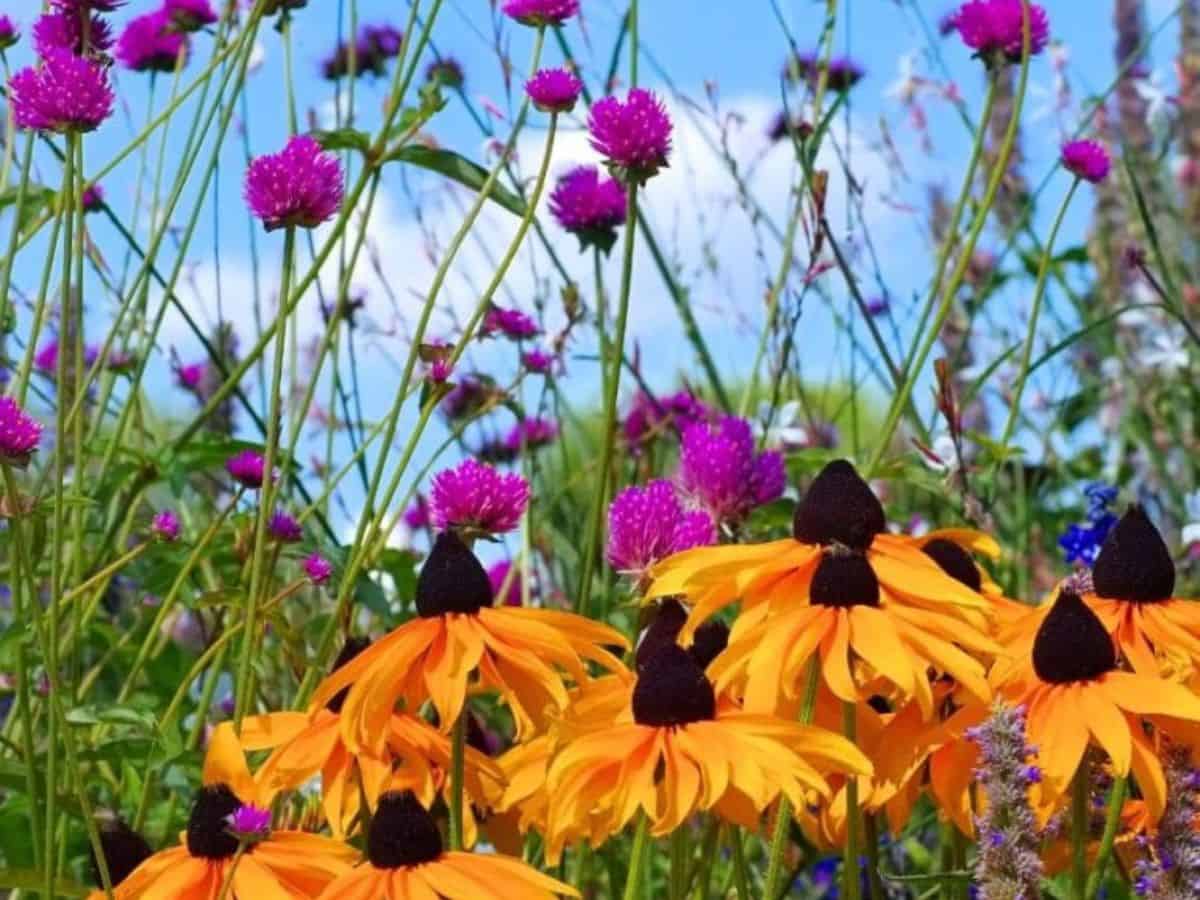
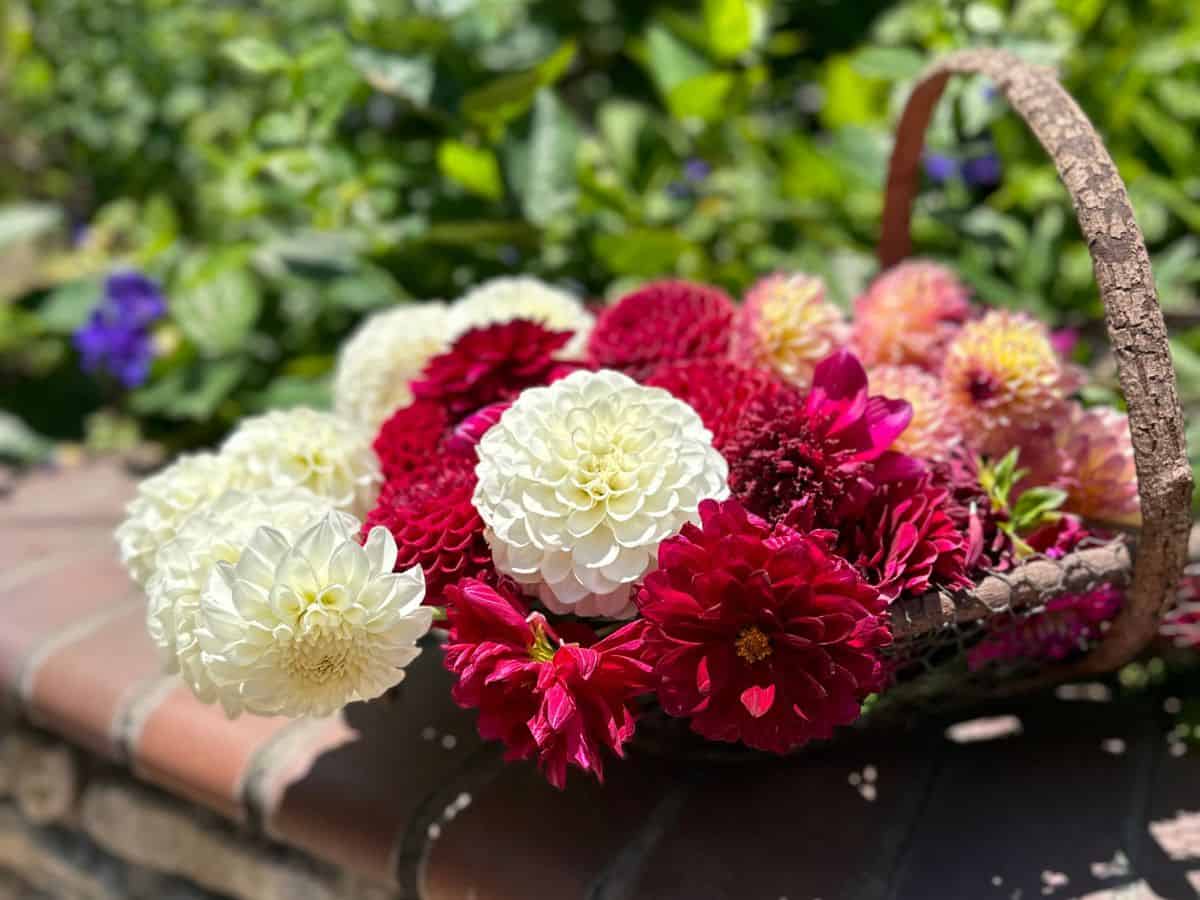

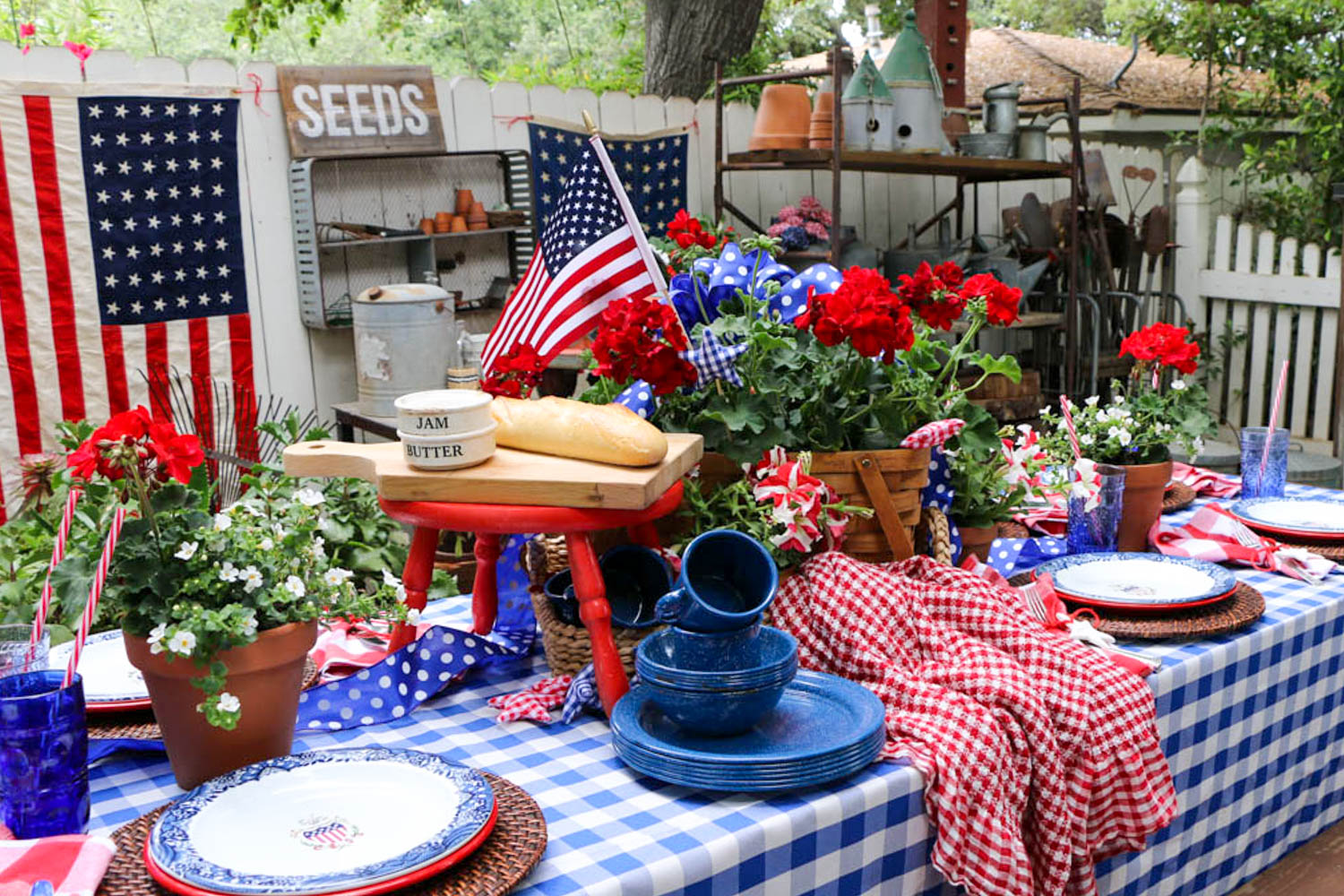
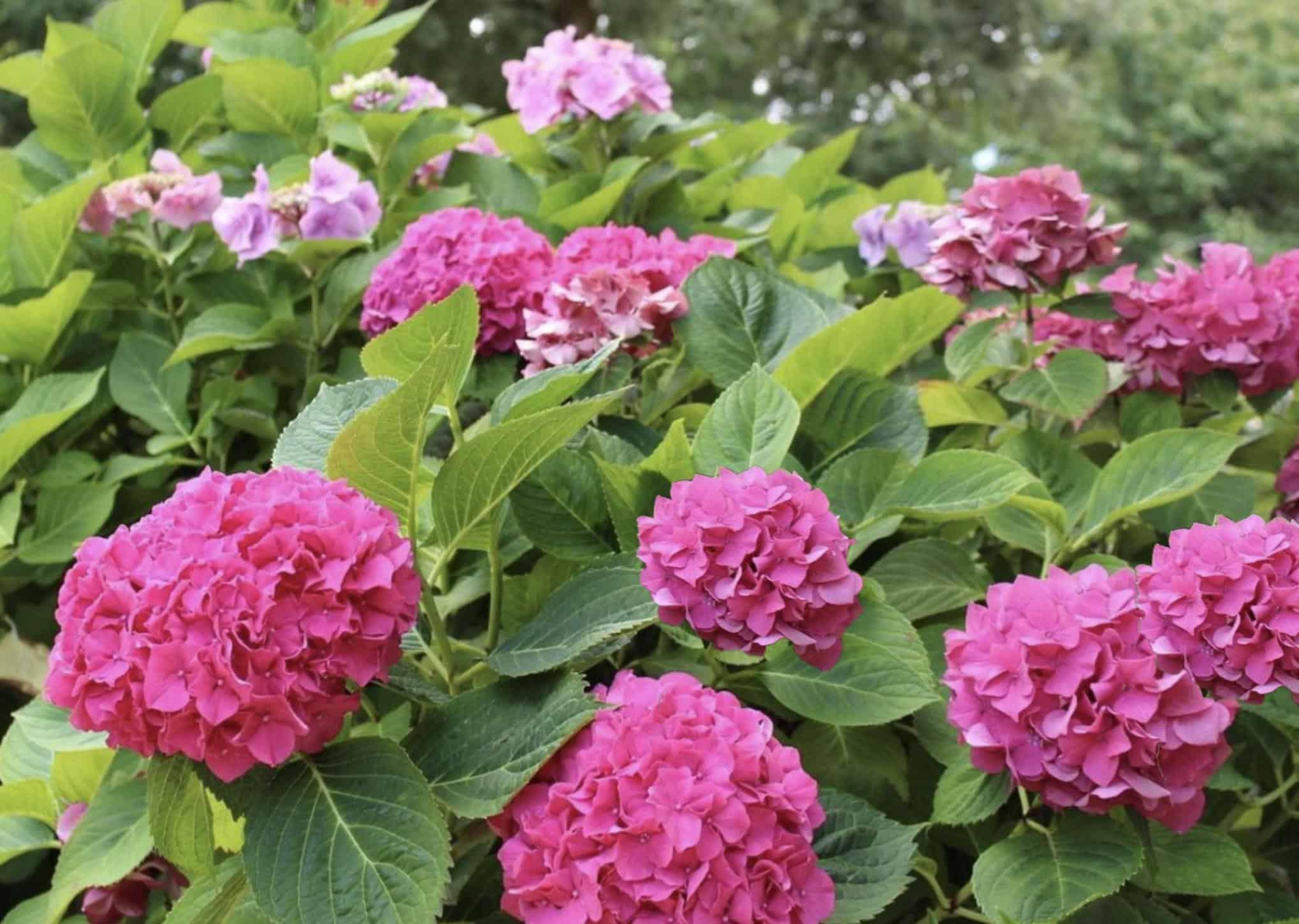
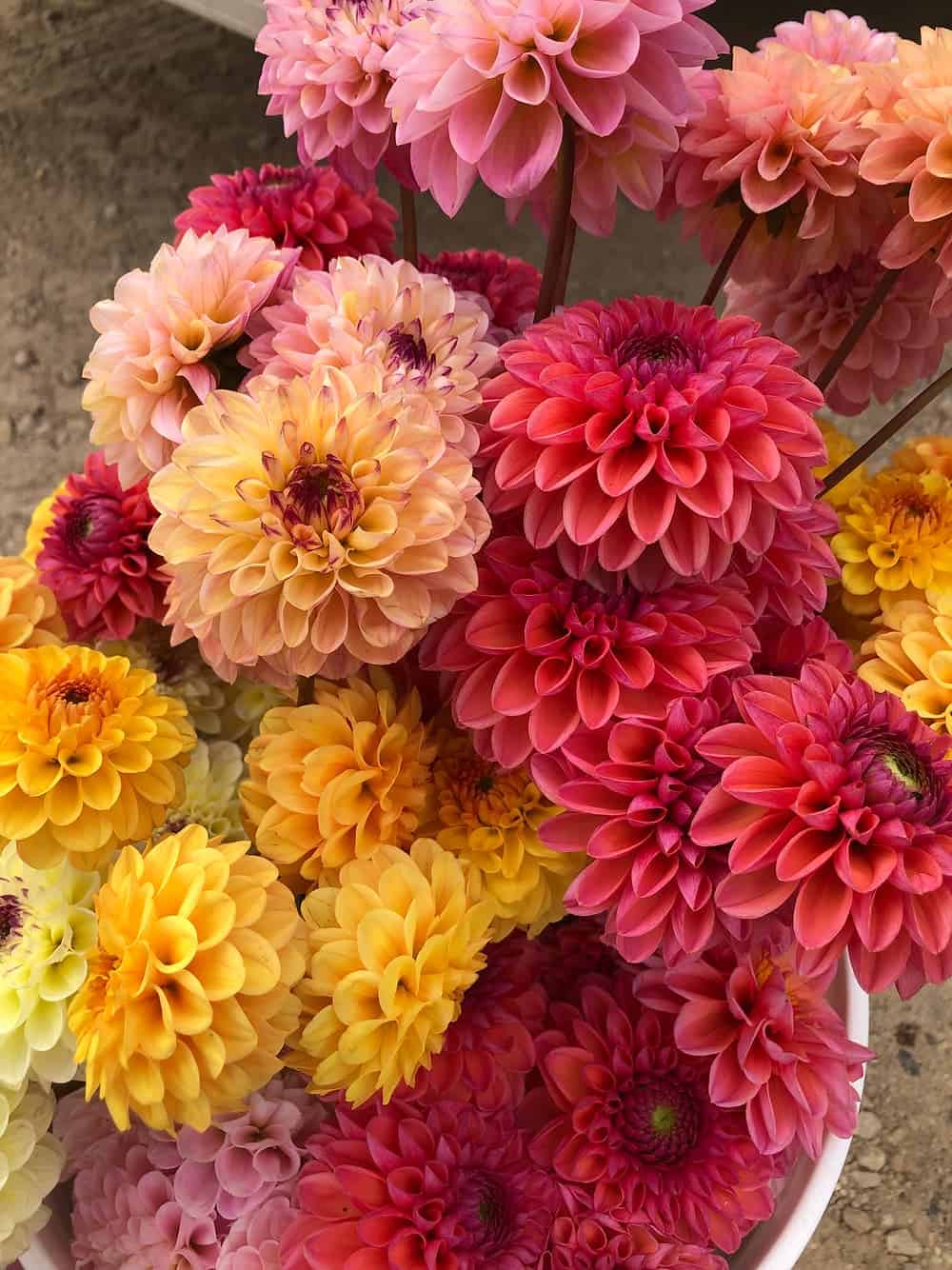
Love your garden! Your Dahlias are beautiful and I love your planting instructions! Patty Lake
Thank you, Patty. Dahlias are my favorite. I’m glad the instructions are helpful!
They are absolutely gorgeous! I think I will have to give them a try. I am pinning this post so I have the information.
Wendy
I’ve wanted to plant these but just haven’t done so. I’m pinning for future reference.
You will love growing dahlias if you have not tried them before. They make such great-cut flowers to take in the house and enjoy.